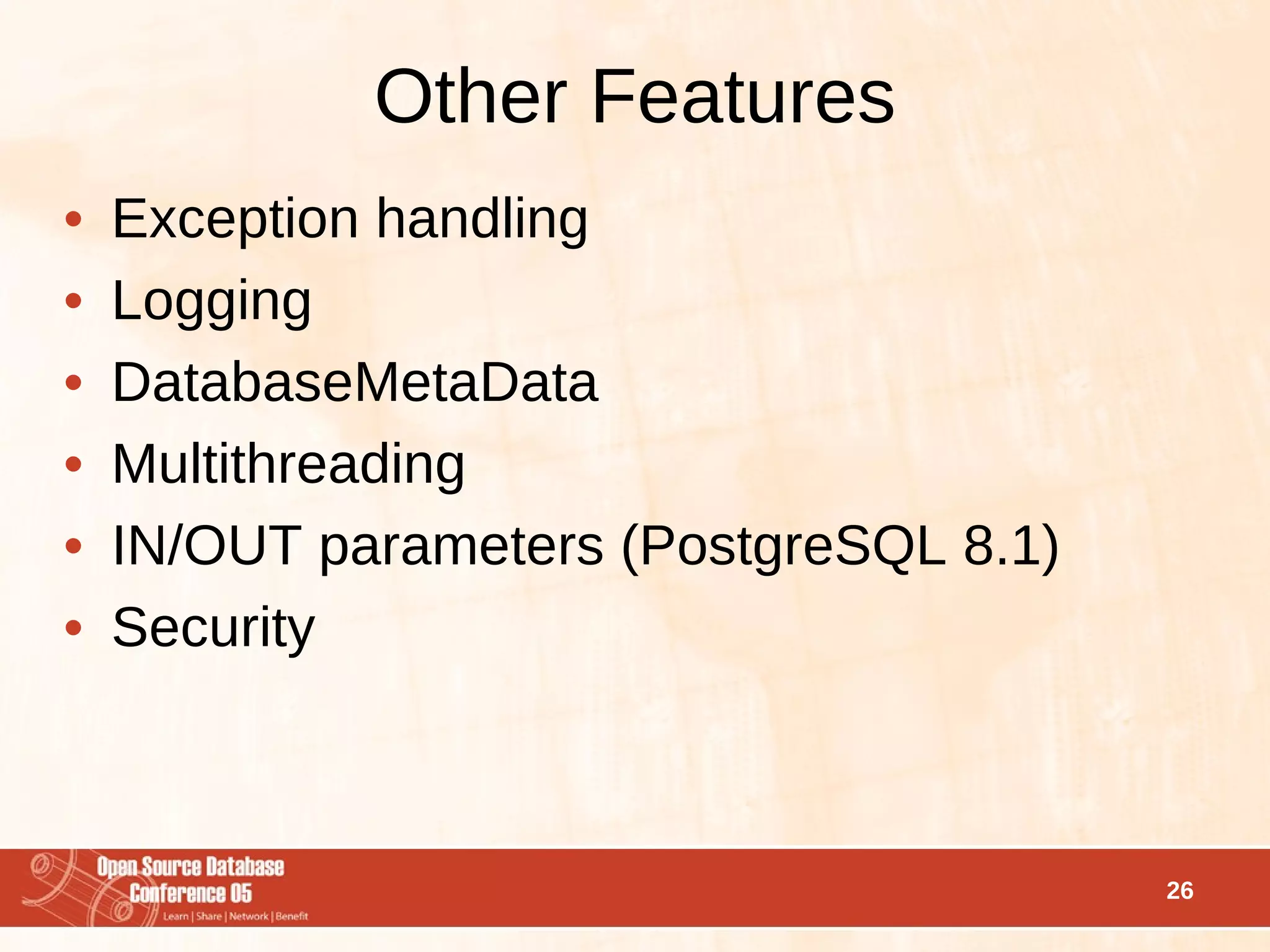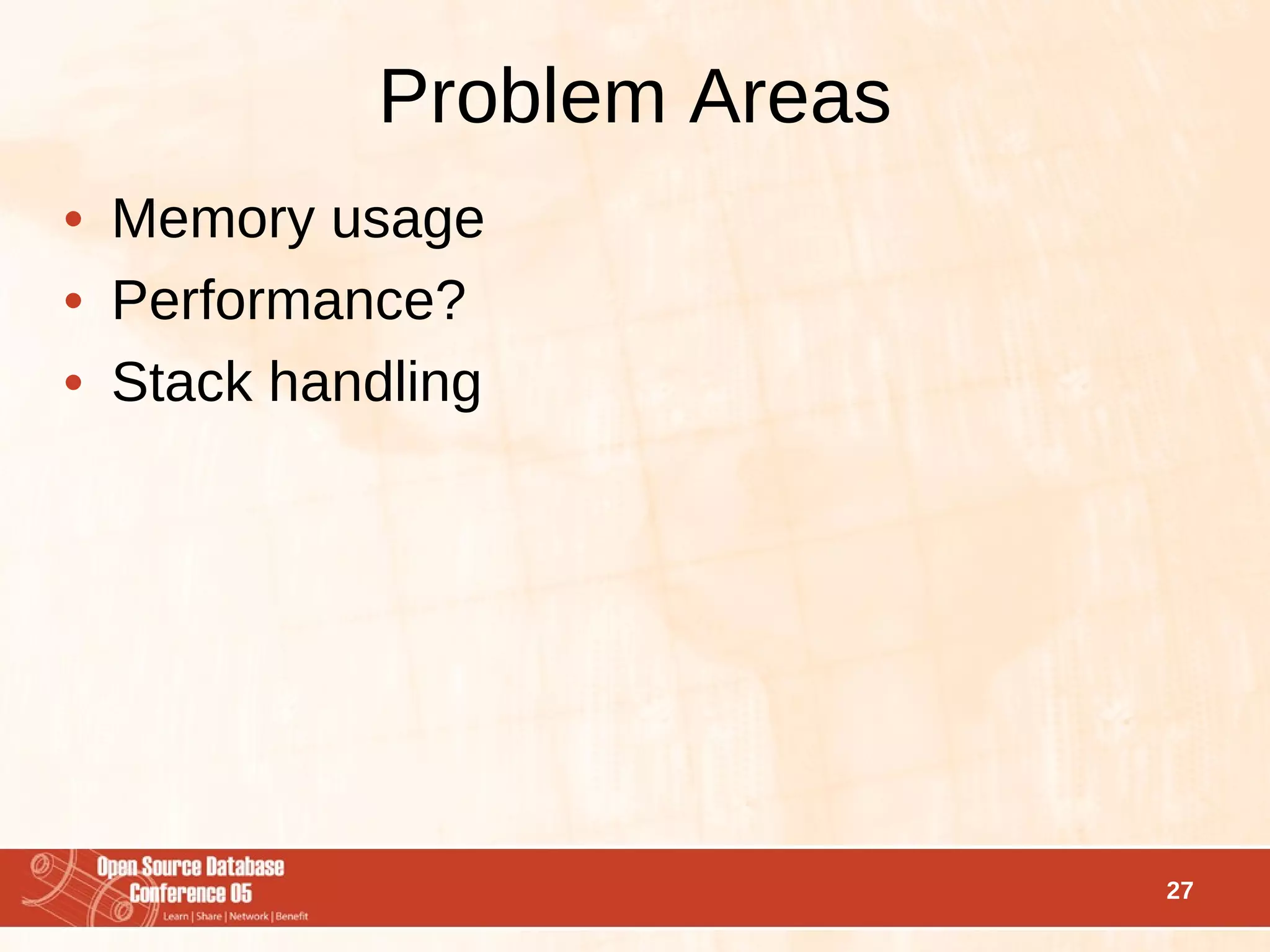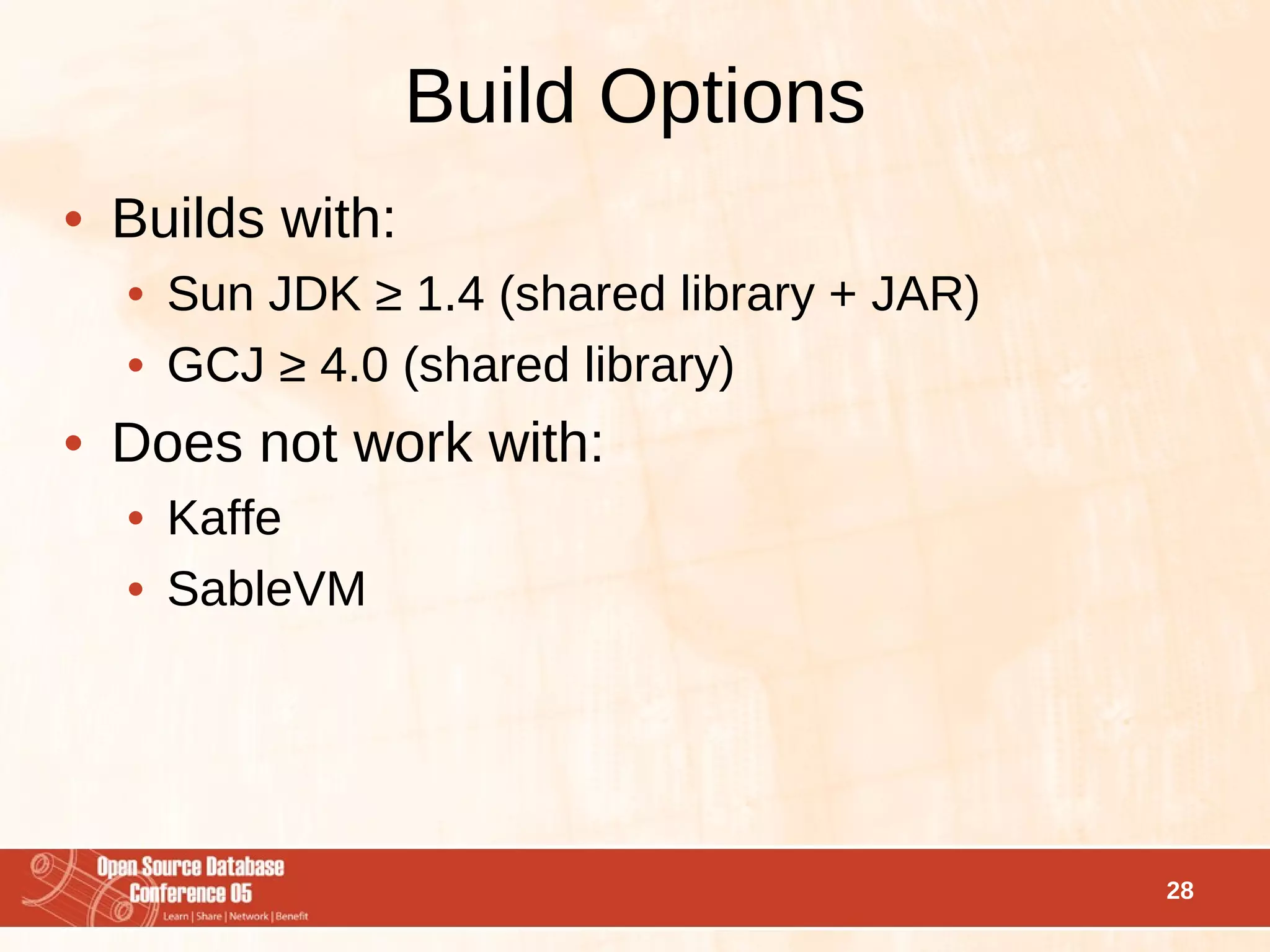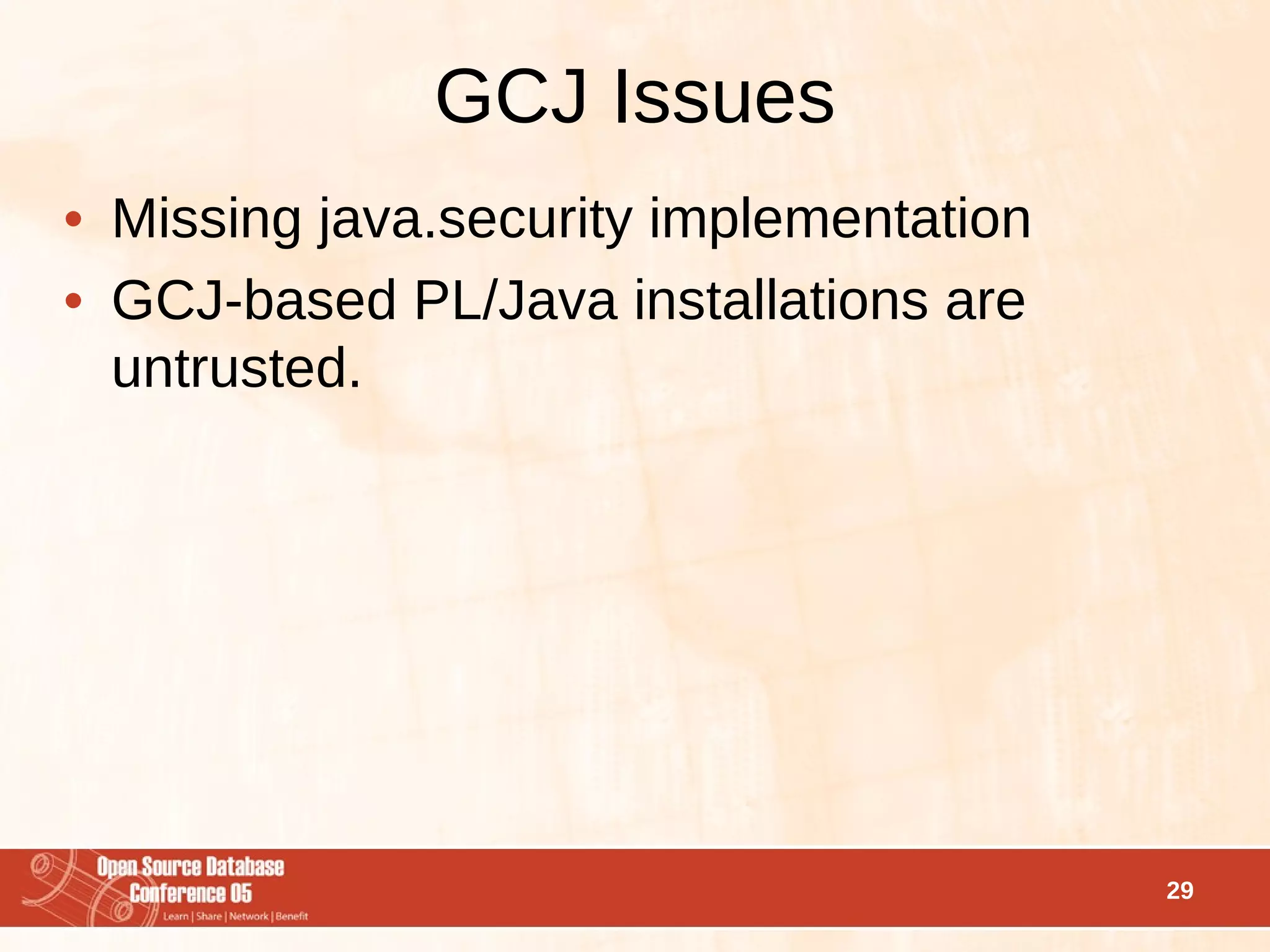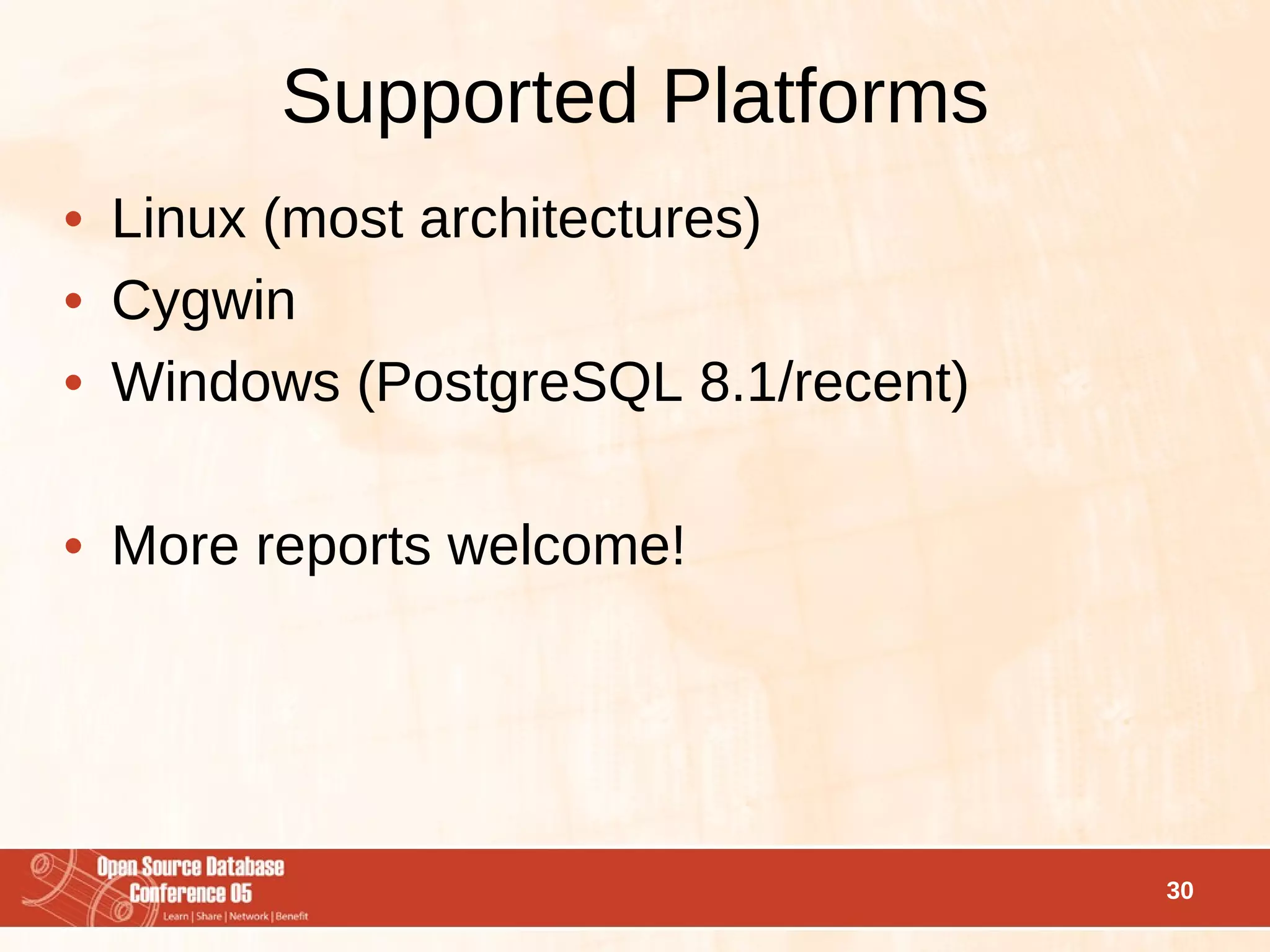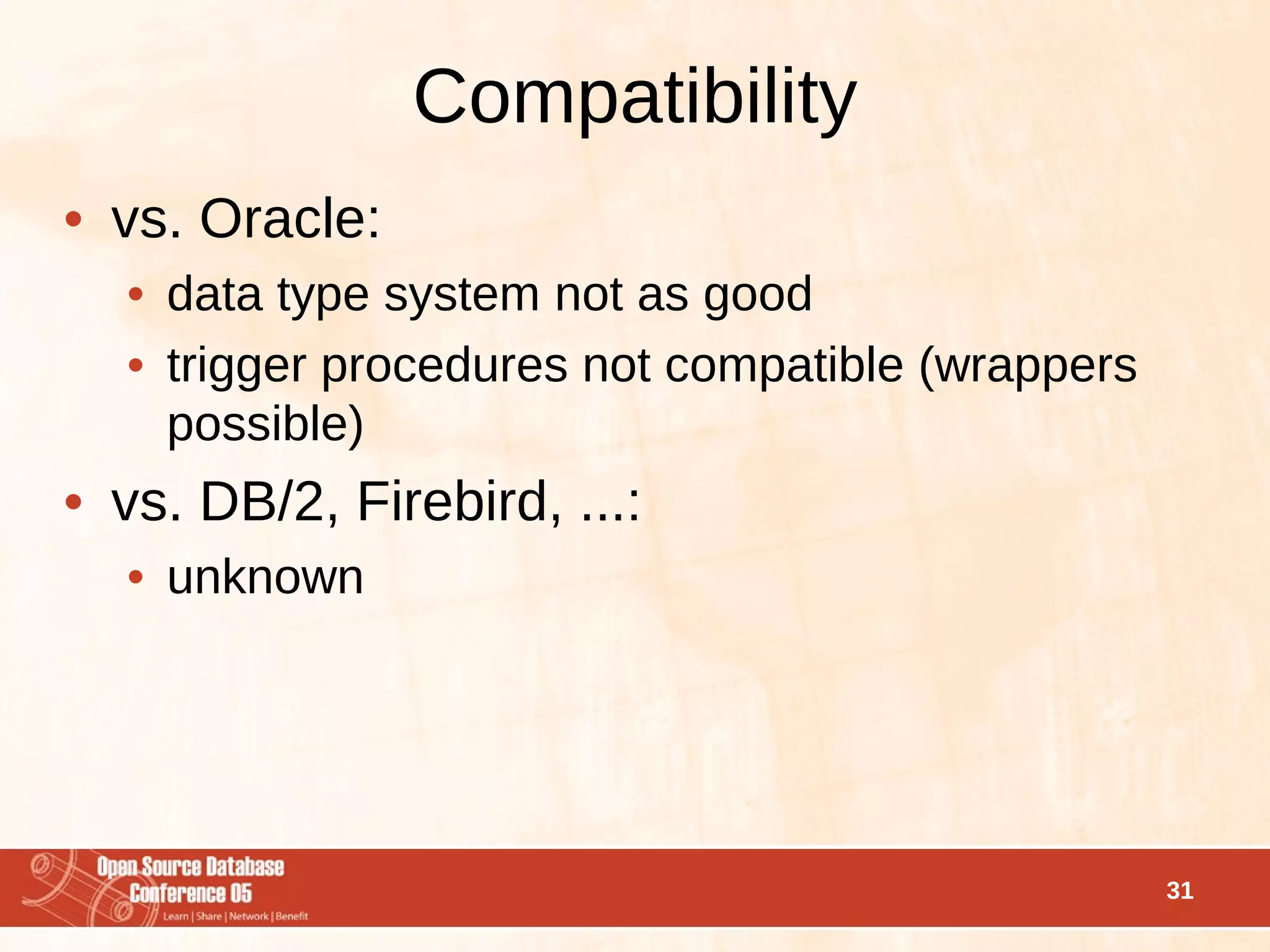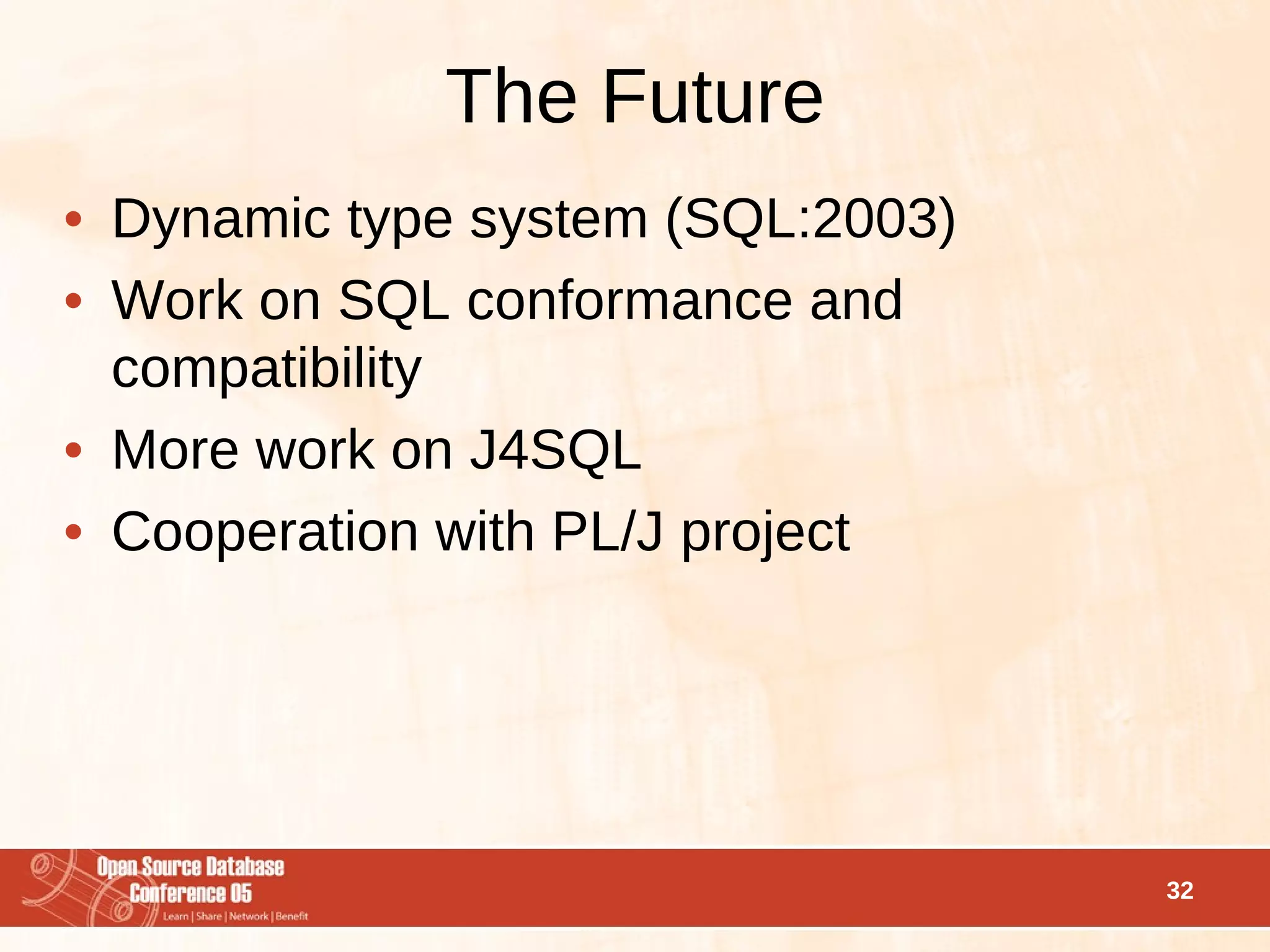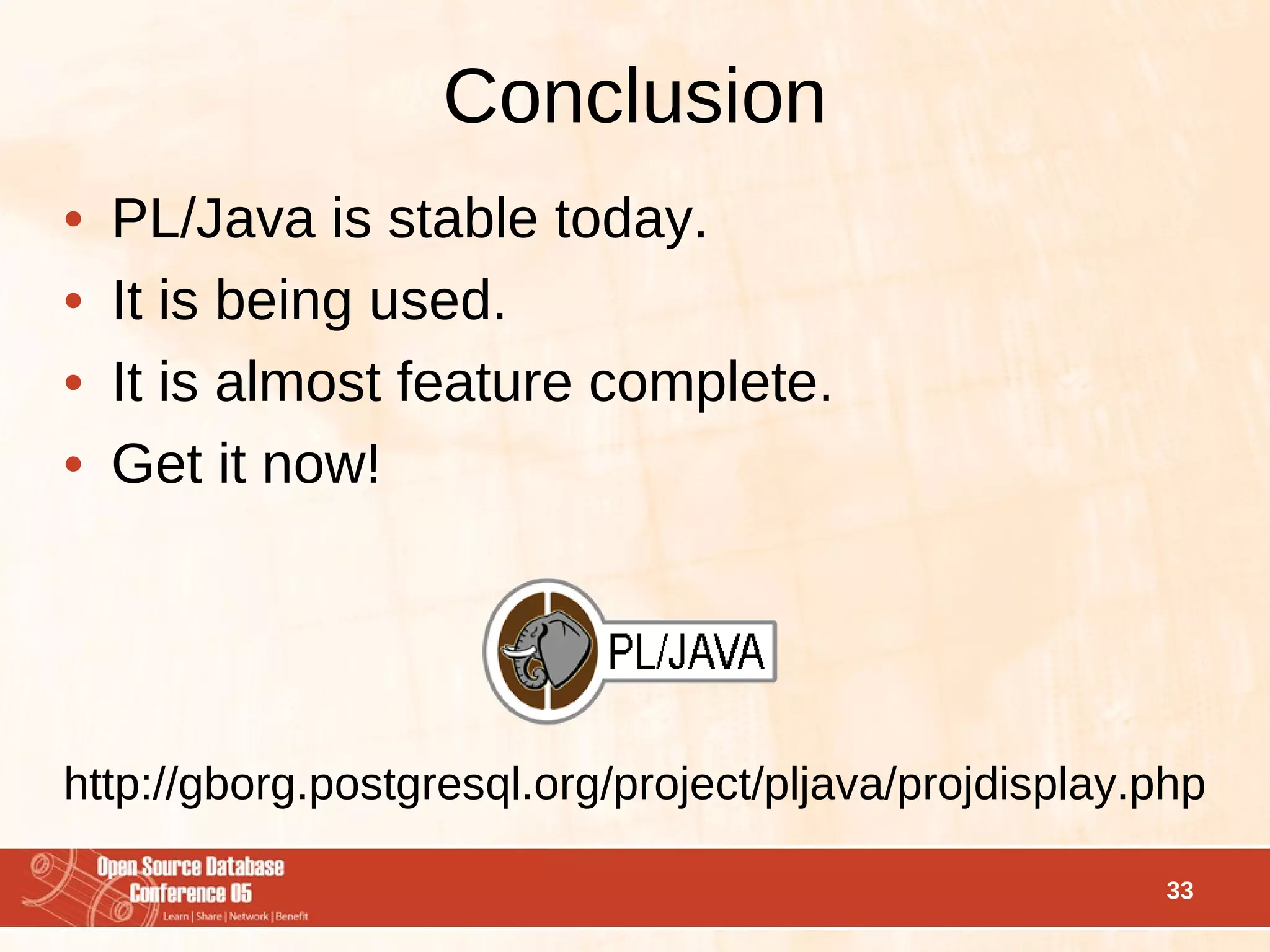This document summarizes PL/Java, which allows writing server-side functions in Java for PostgreSQL. It discusses how to define and deploy Java functions, configure PL/Java, handle parameters and return types, use JDBC from functions, and write triggers in Java. While compatible with Oracle's SQL/JRT standard, PL/Java has some limitations around memory usage and performance. It works best on Linux and is a stable option for adding Java code to PostgreSQL databases.
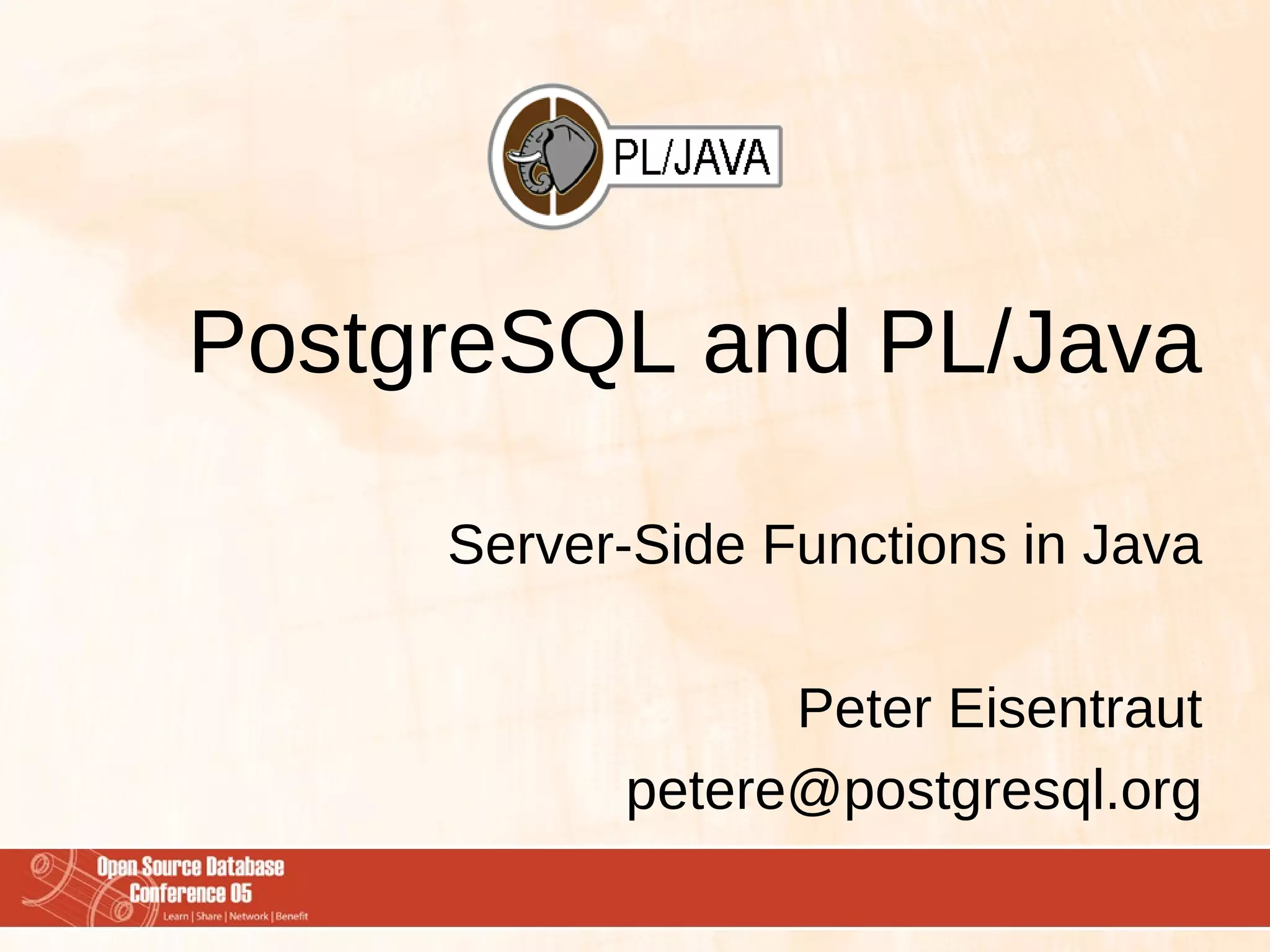
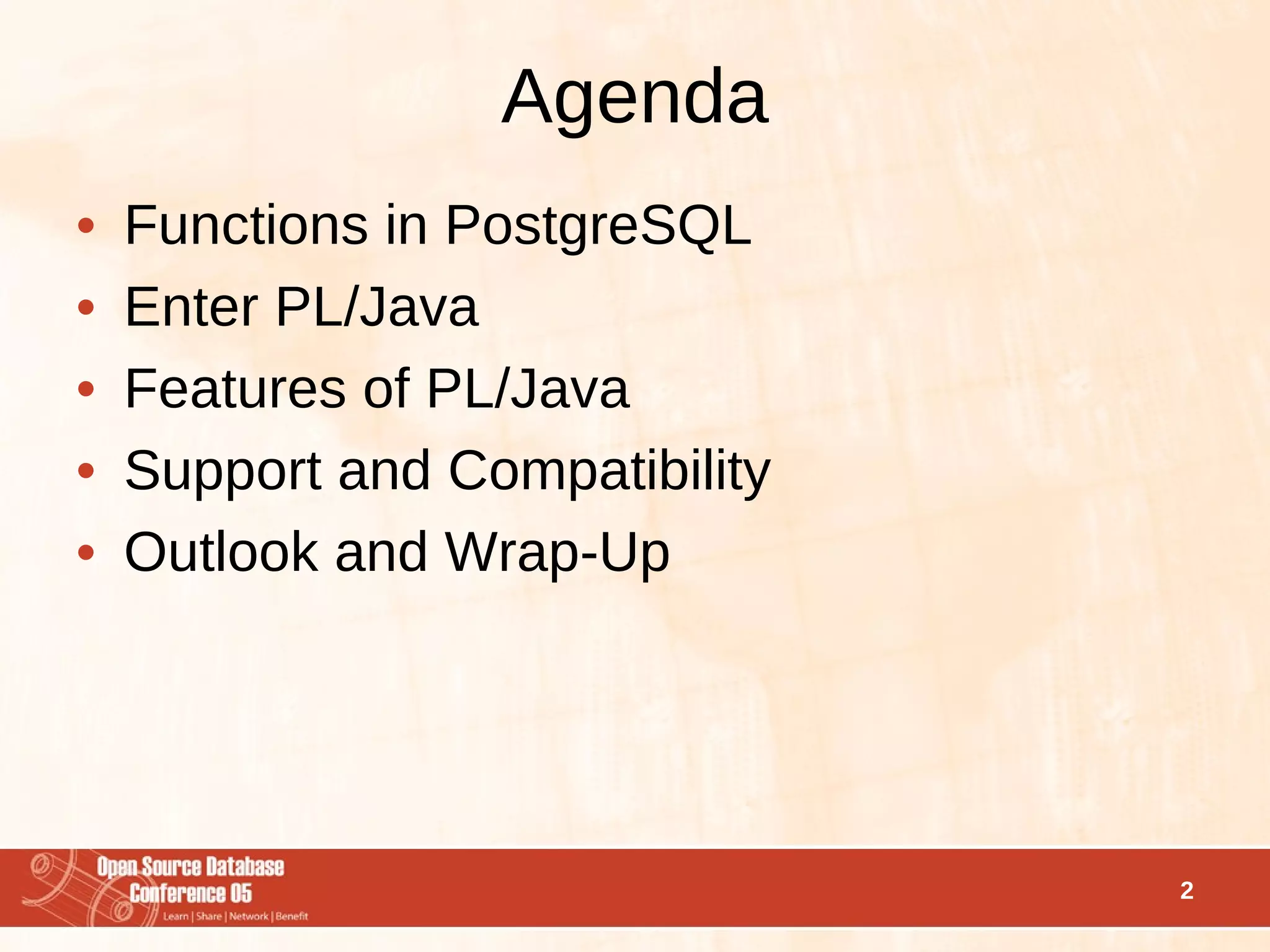
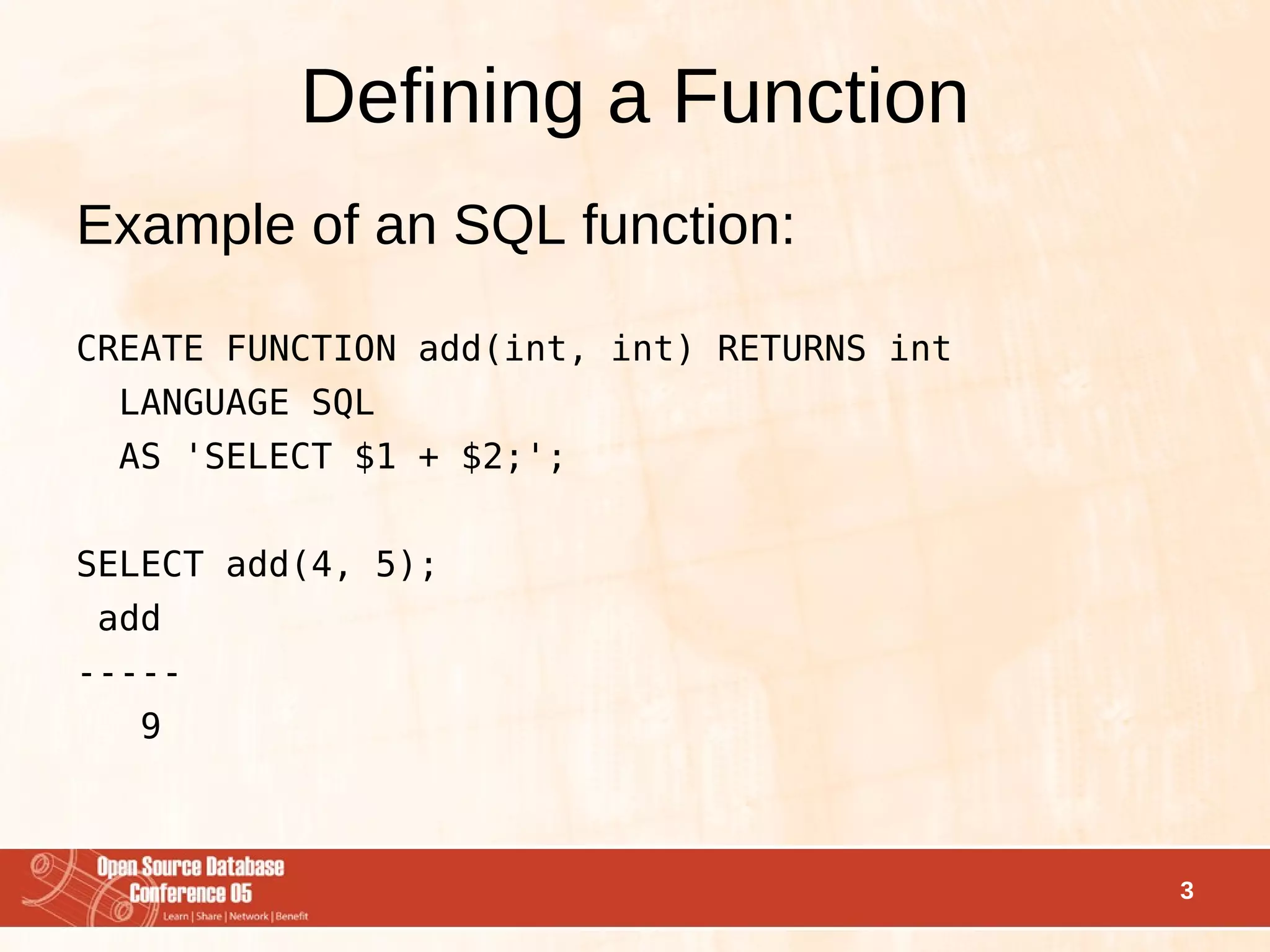
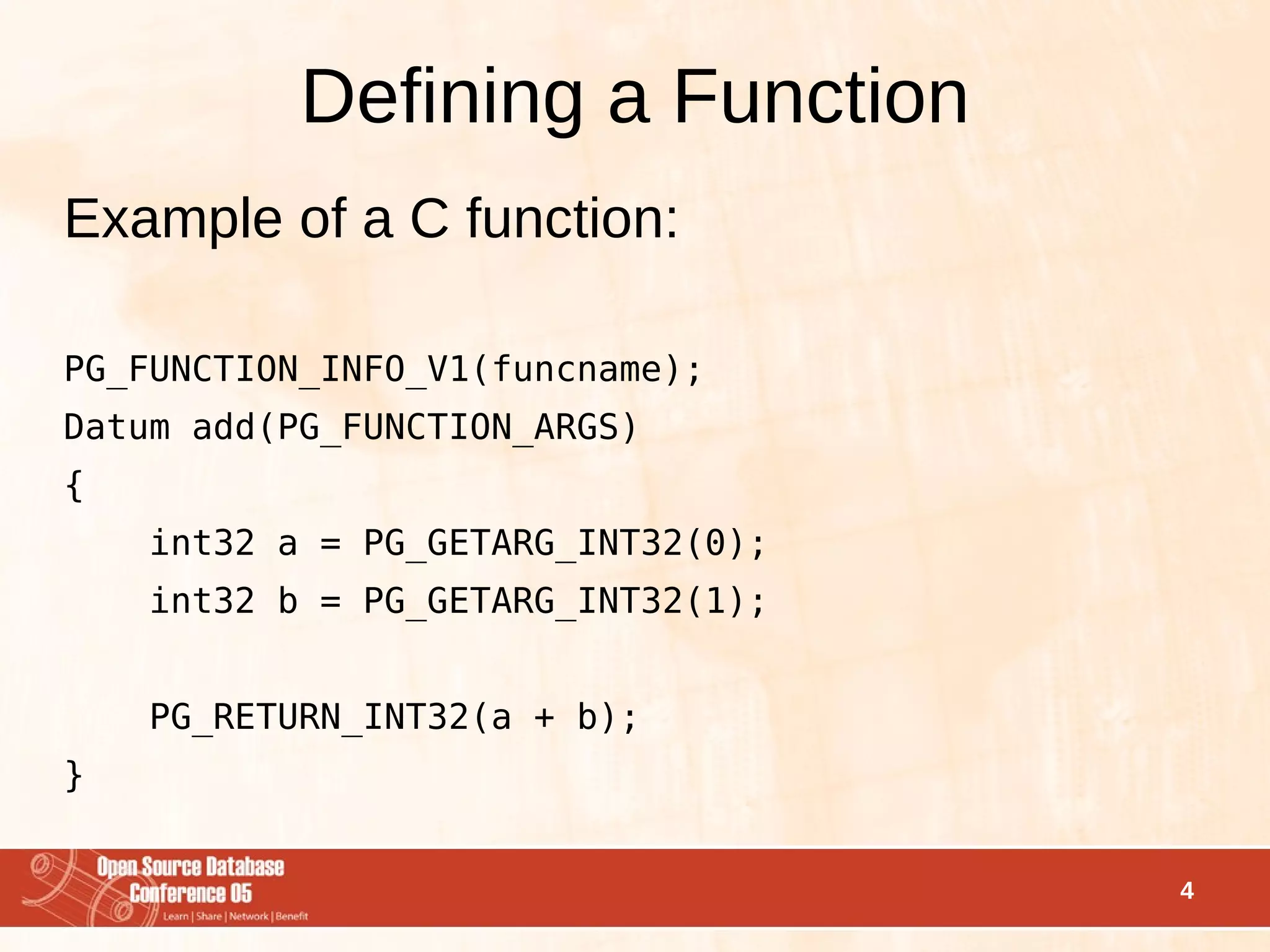
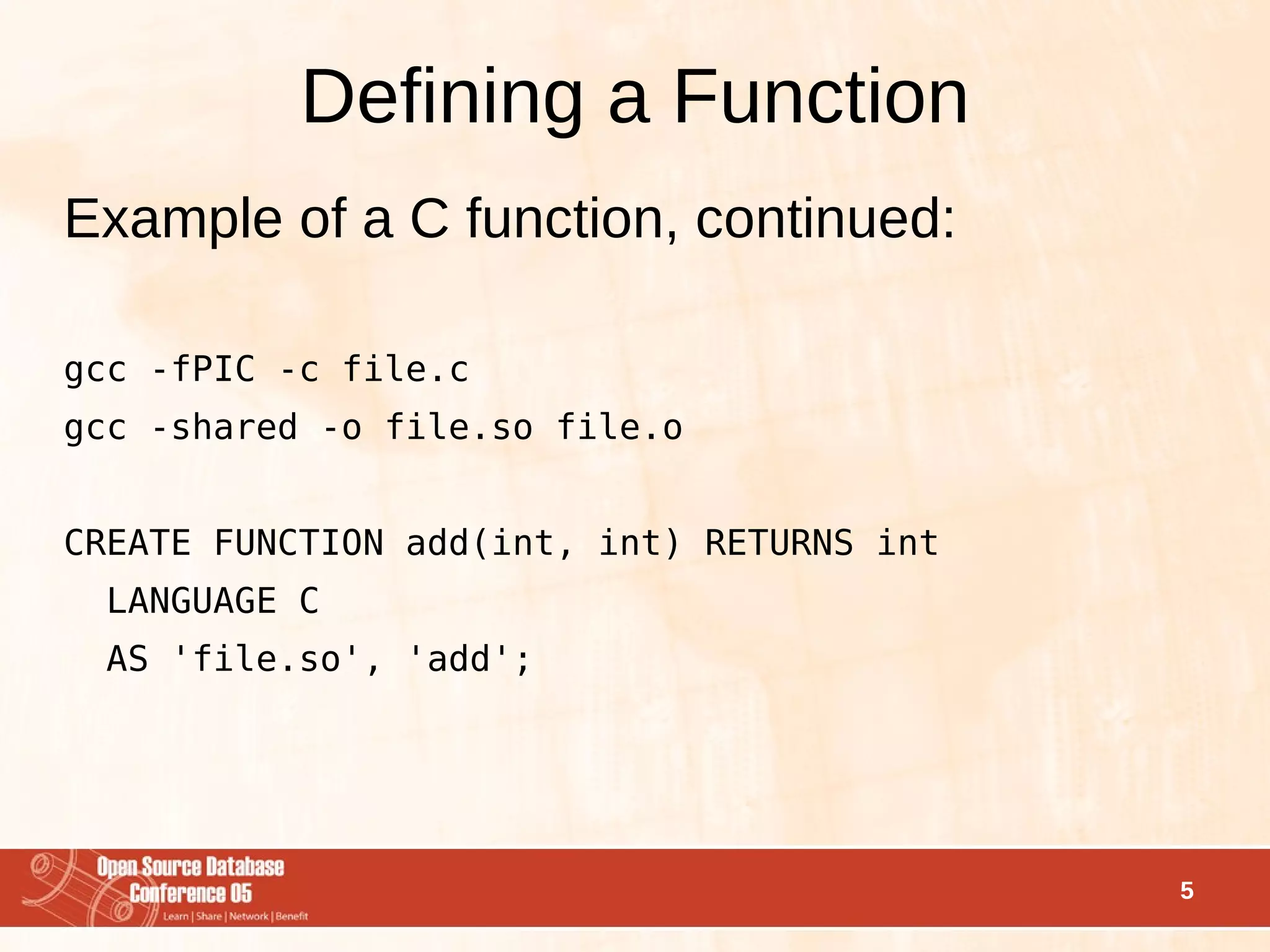
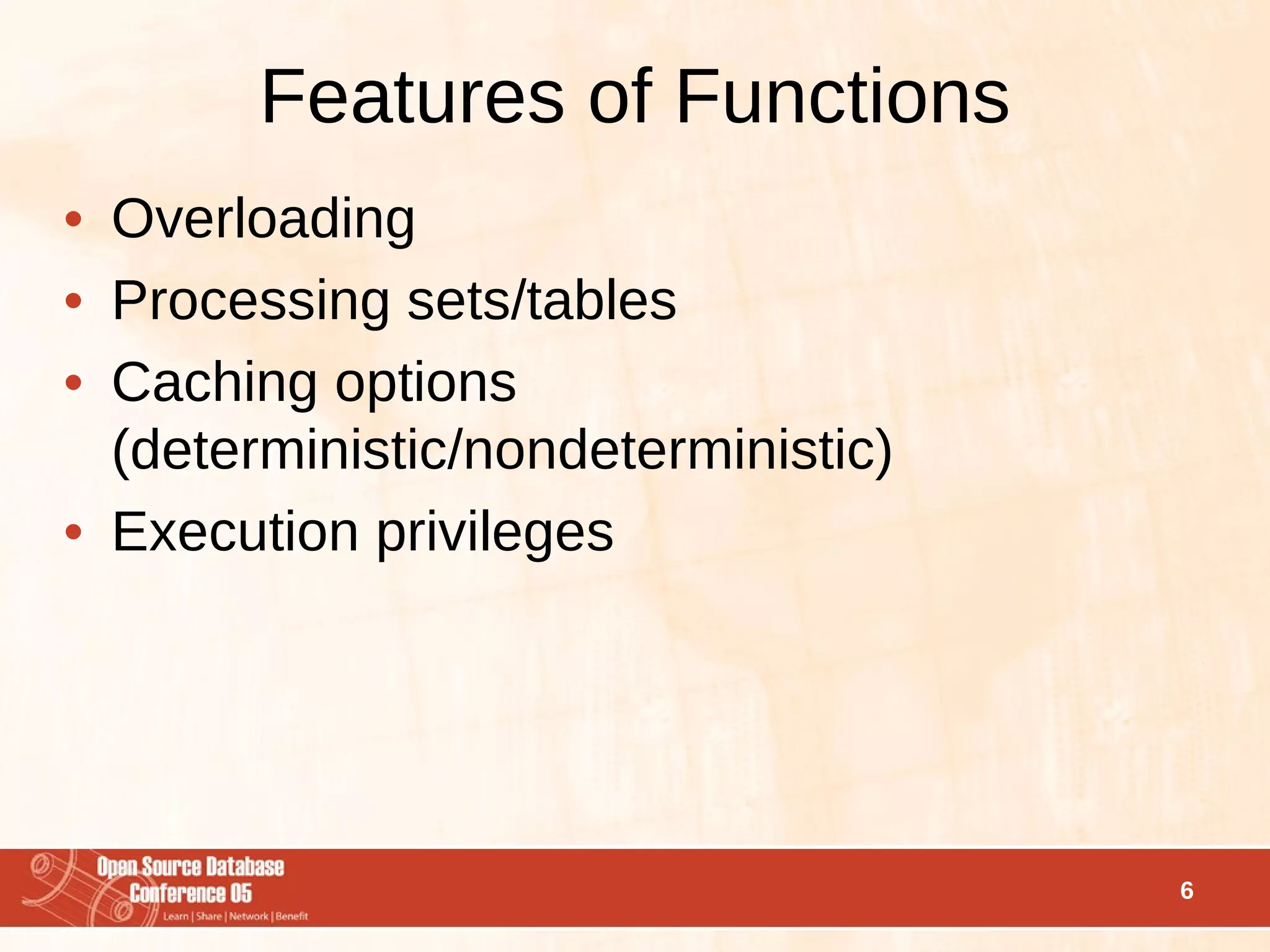
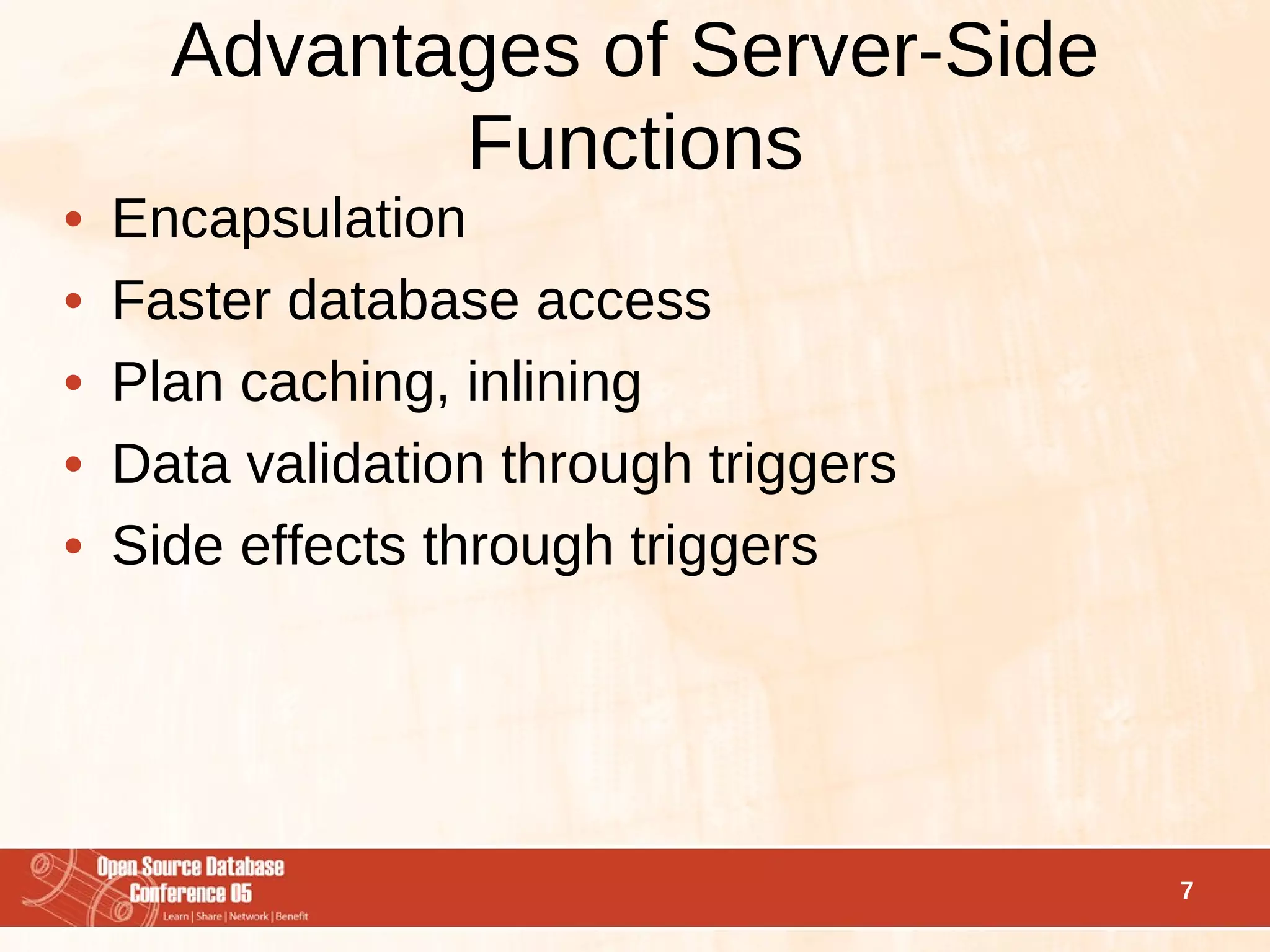
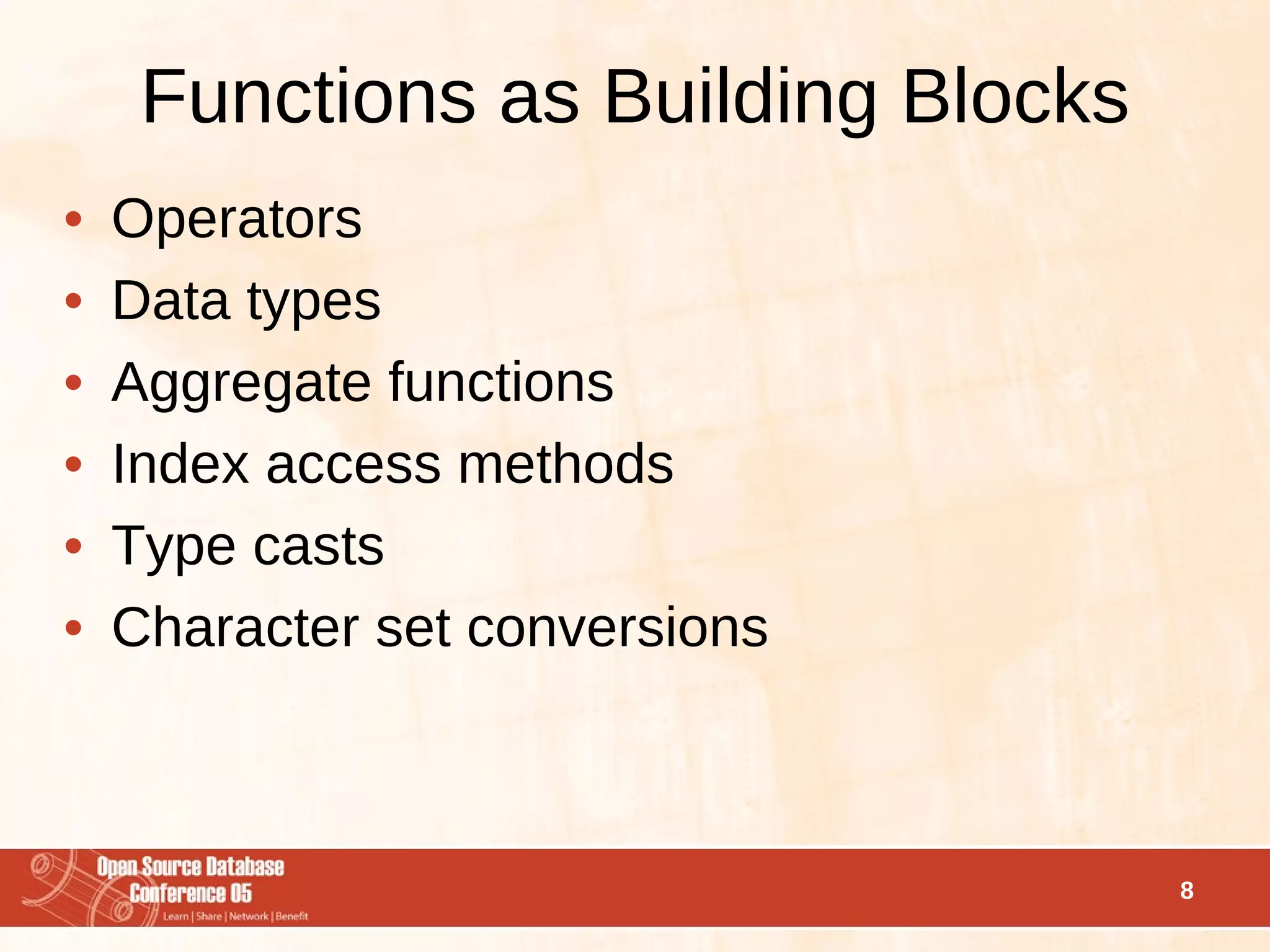
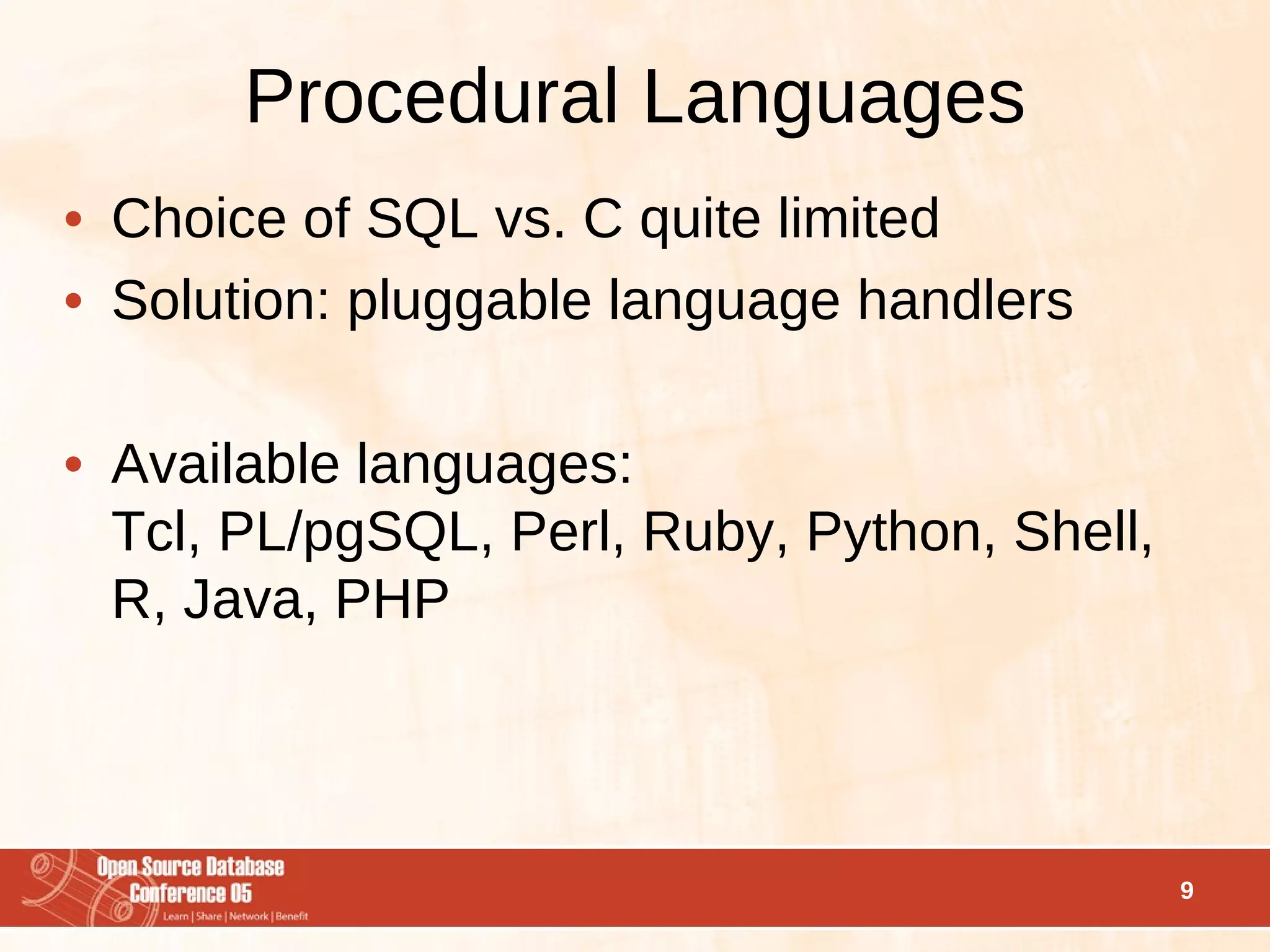
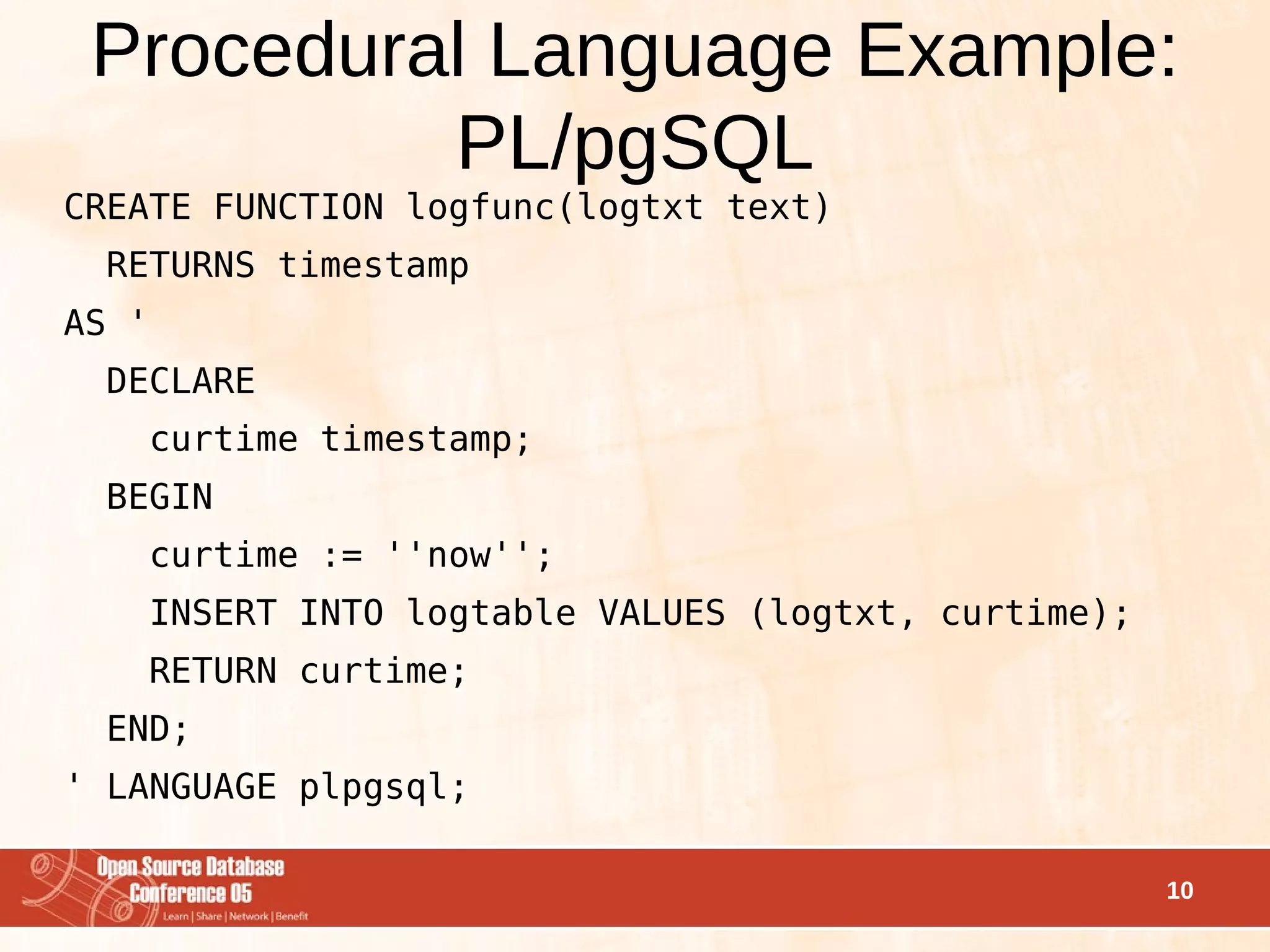
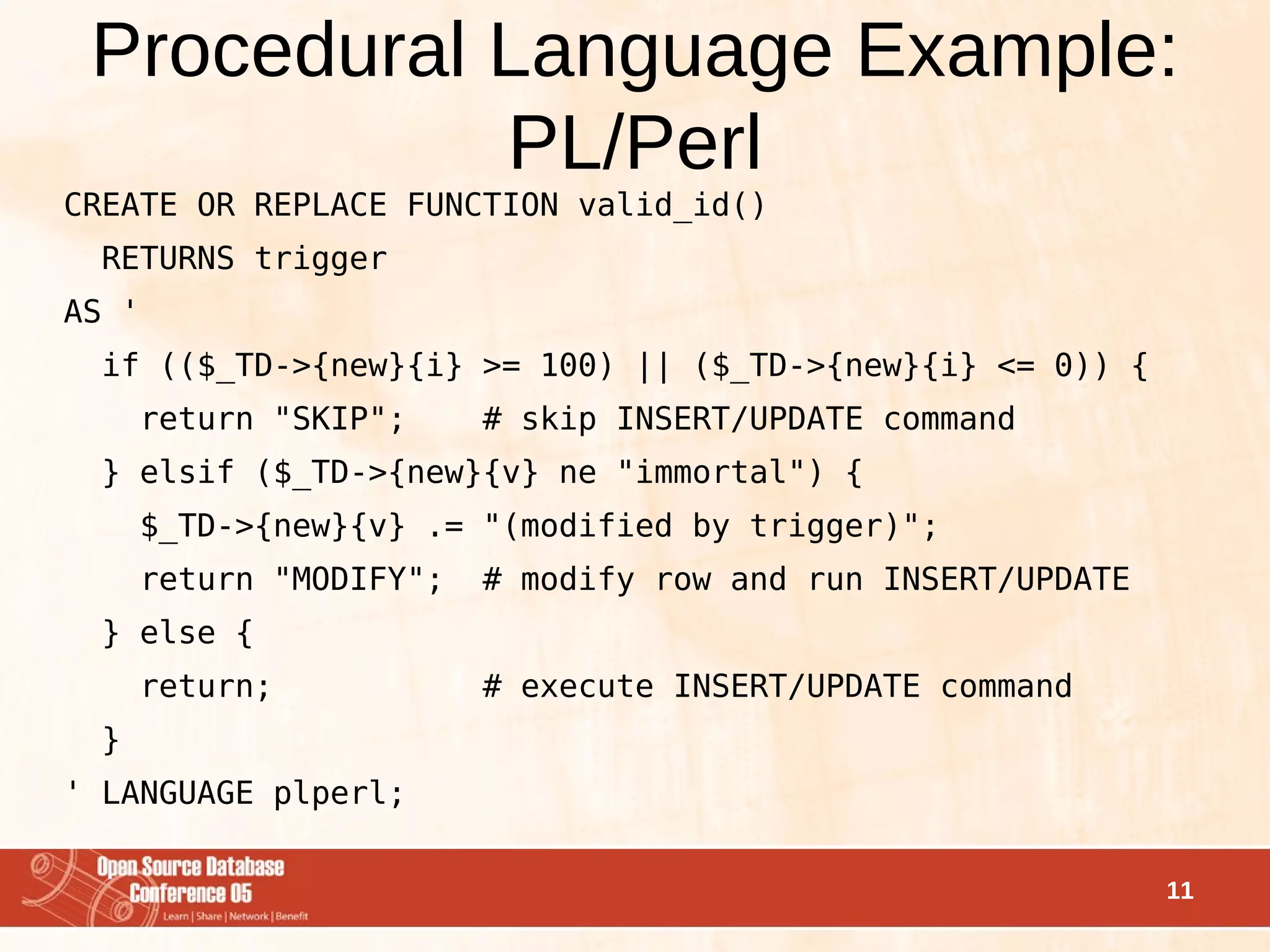
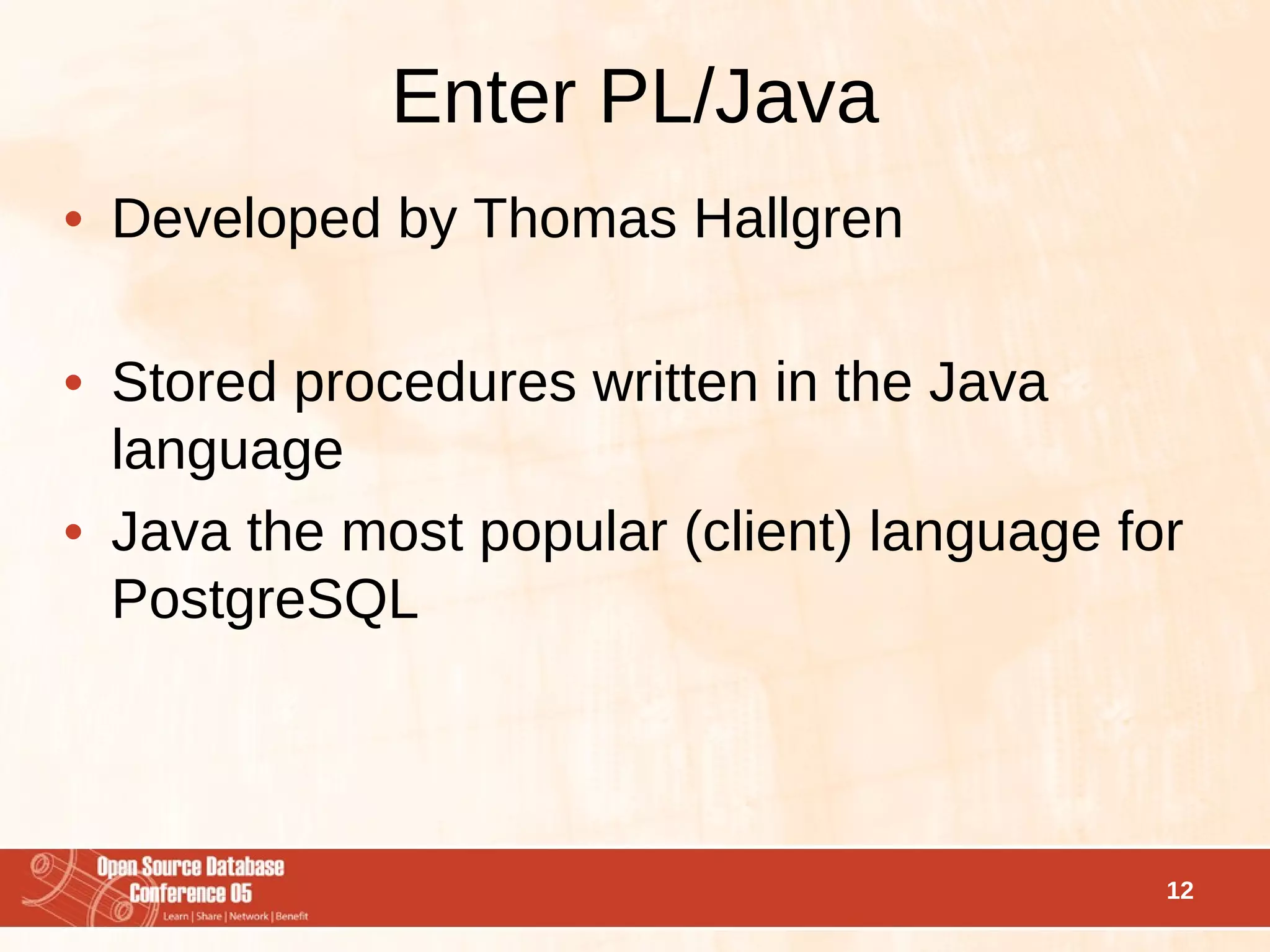
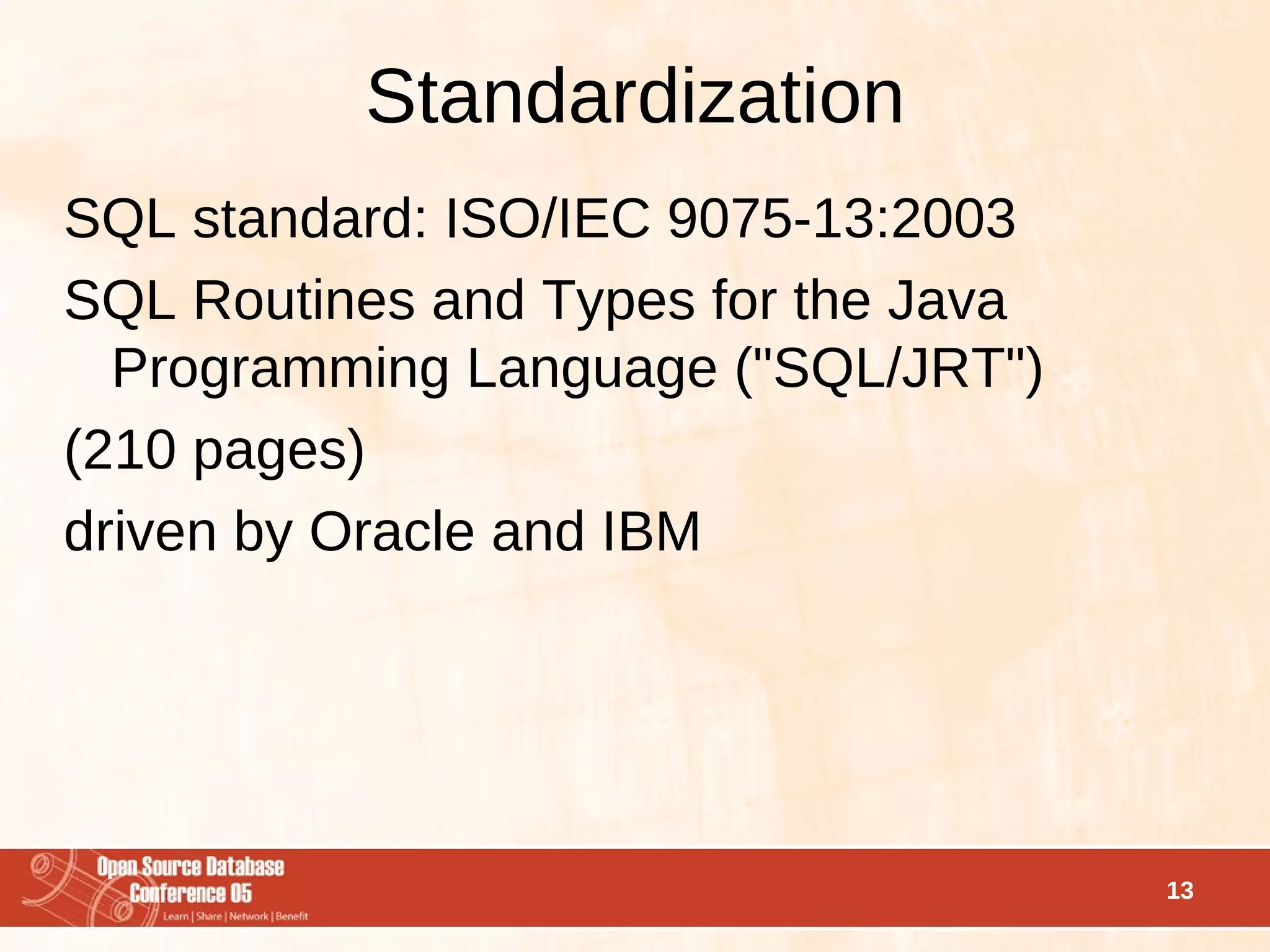
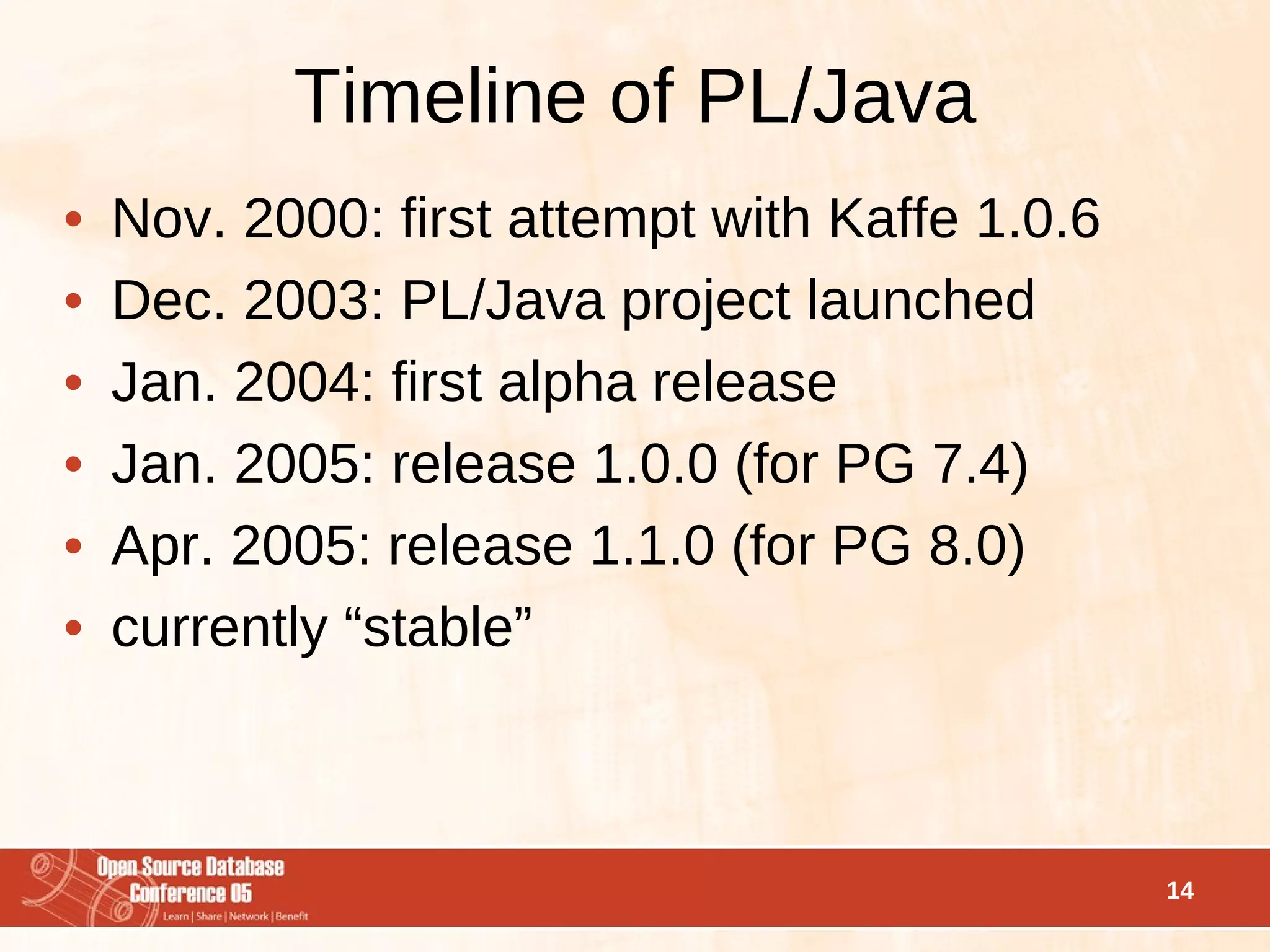
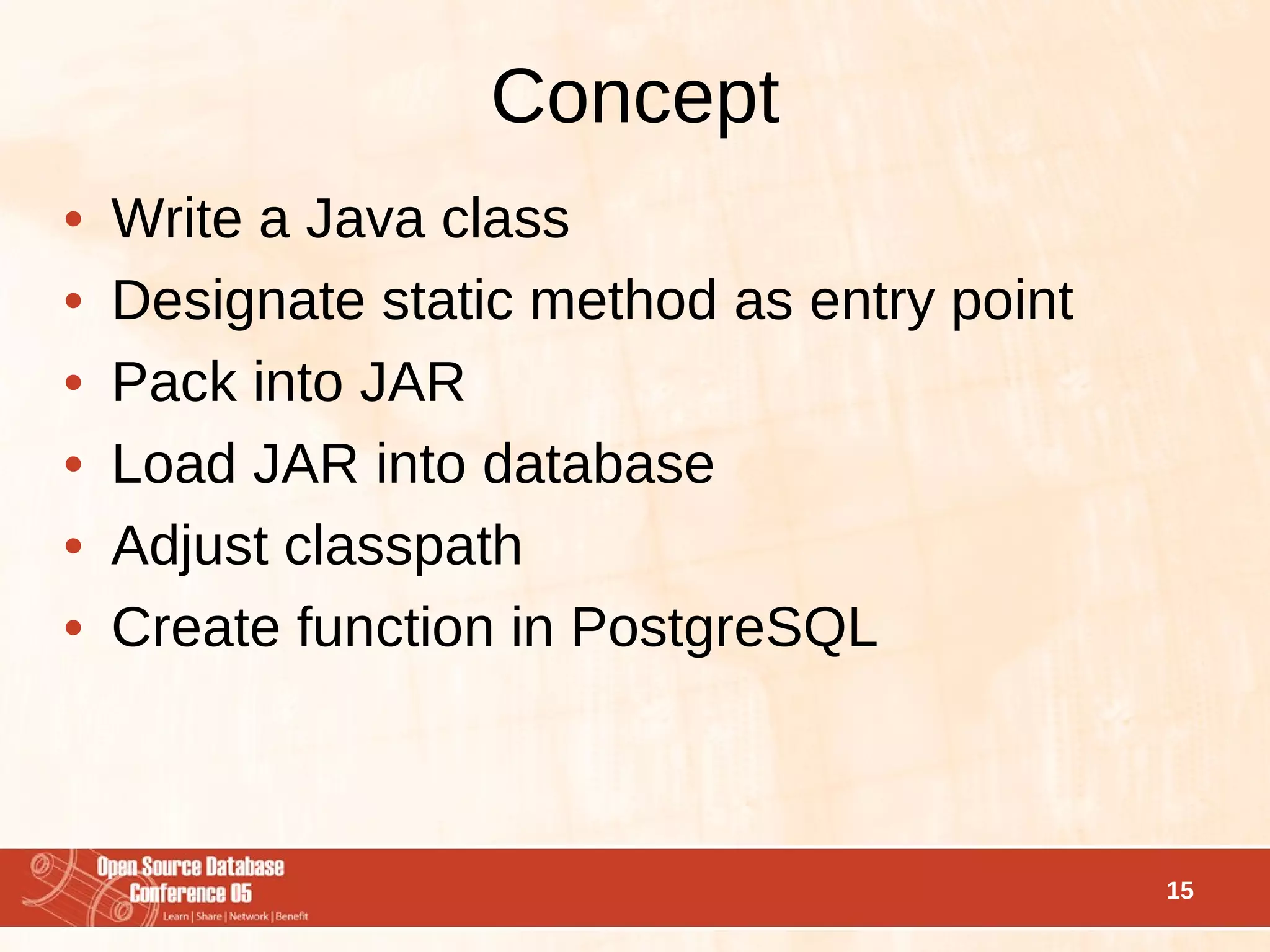
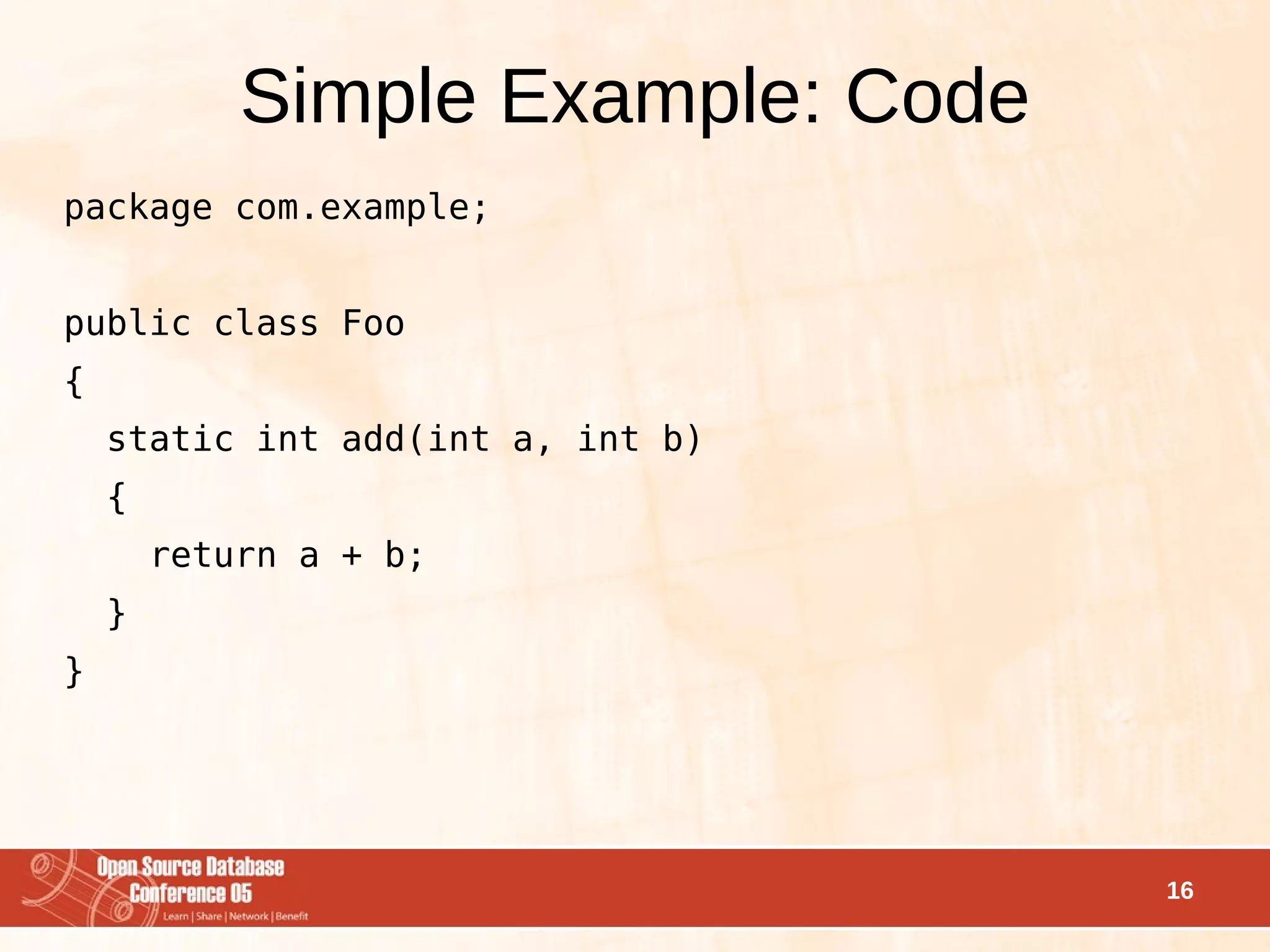
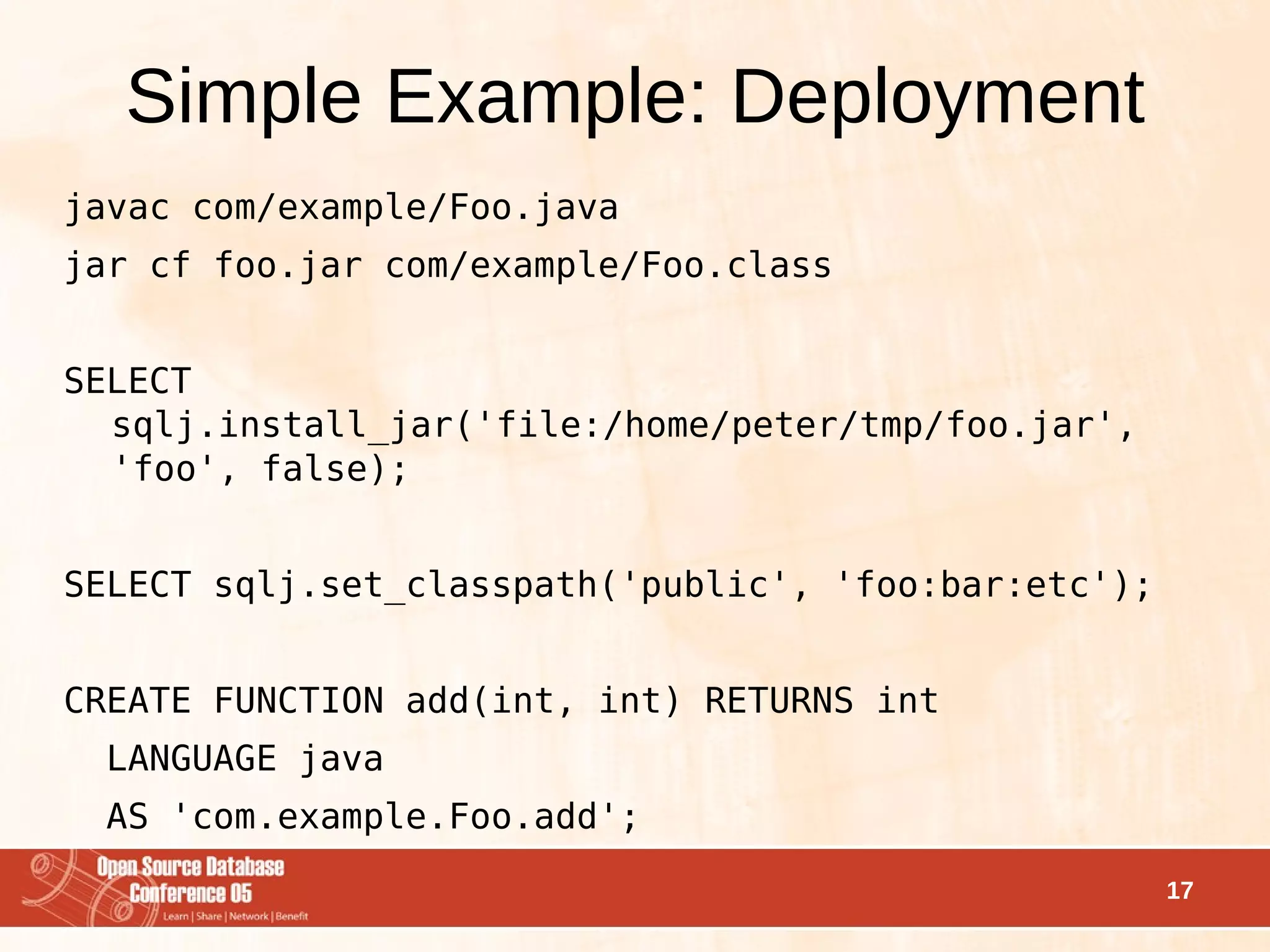
![Deployment Descriptor Optional way to integrate install/uninstall SQL statements into the JAR file: SQLActions[] = { "BEGIN INSTALL CREATE FUNCTION add(int, int) RETURNS int LANGUAGE java AS 'com.example.Foo.add'; END INSTALL", "BEGIN REMOVE DROP FUNCTION add(int, int); END REMOVE" } 18](https://image.slidesharecdn.com/pljava-090619092408-phpapp02/75/PostgreSQL-and-PL-Java-18-2048.jpg)
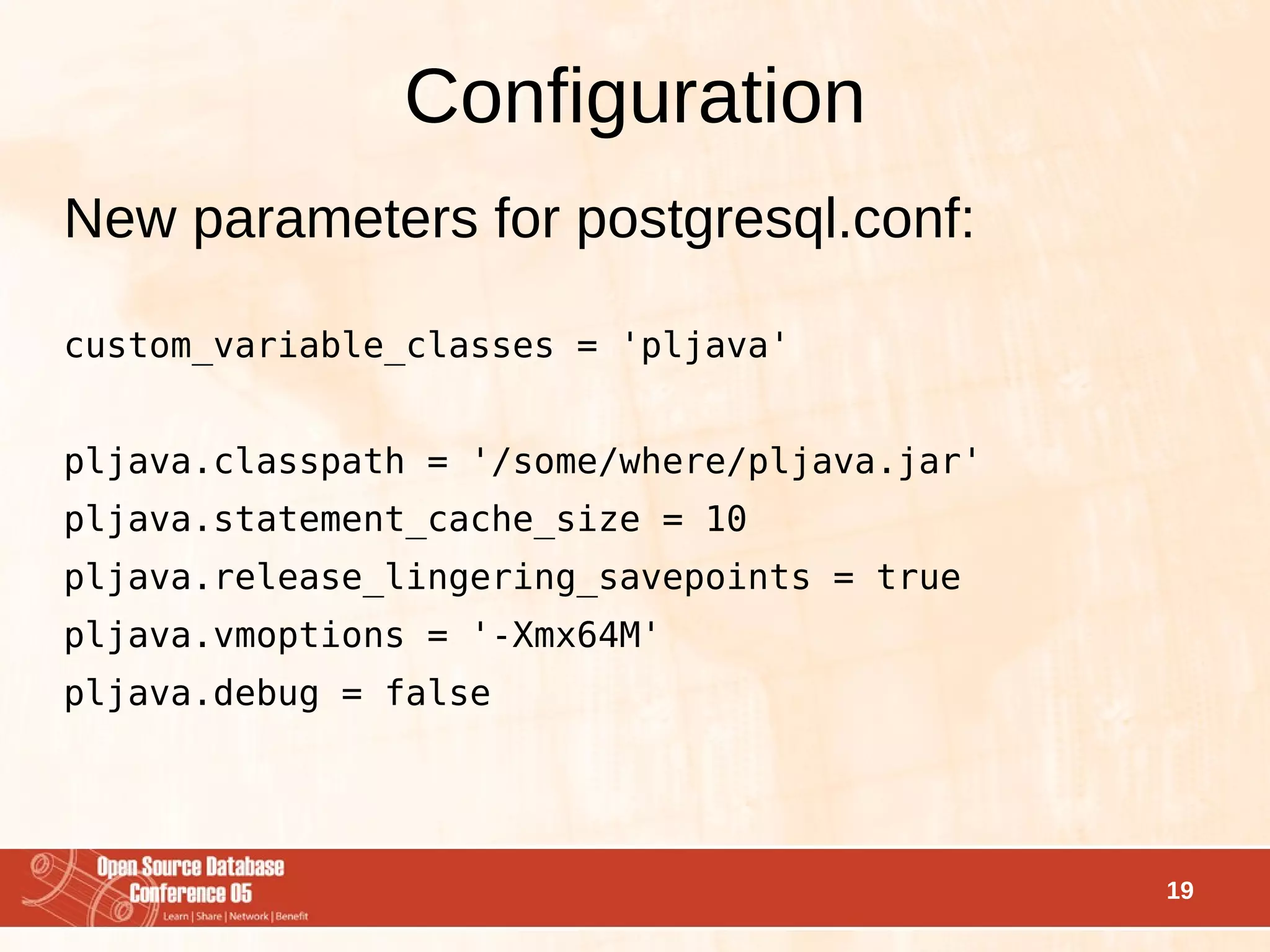
![Parameter Type Mapping Parameter types are mapped automatically: PostgreSQL Java boolean boolean shortint short int int bigint long real float double precision double varchar, text java.lang.String bytea byte[] date java.sql.Date time java.sql.Time timestamp java.sql.Timestamp other java.lang.String 20](https://image.slidesharecdn.com/pljava-090619092408-phpapp02/75/PostgreSQL-and-PL-Java-20-2048.jpg)
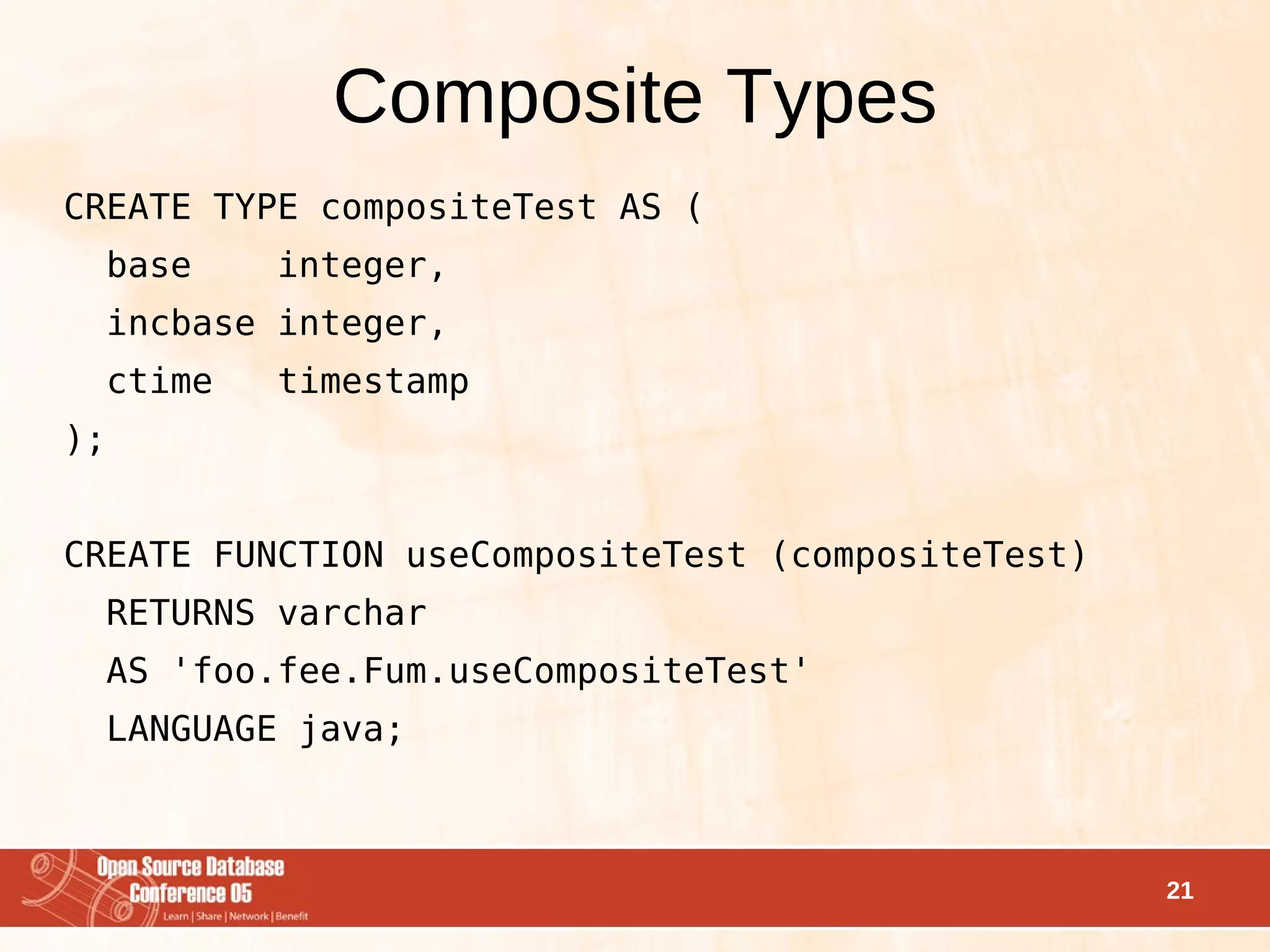
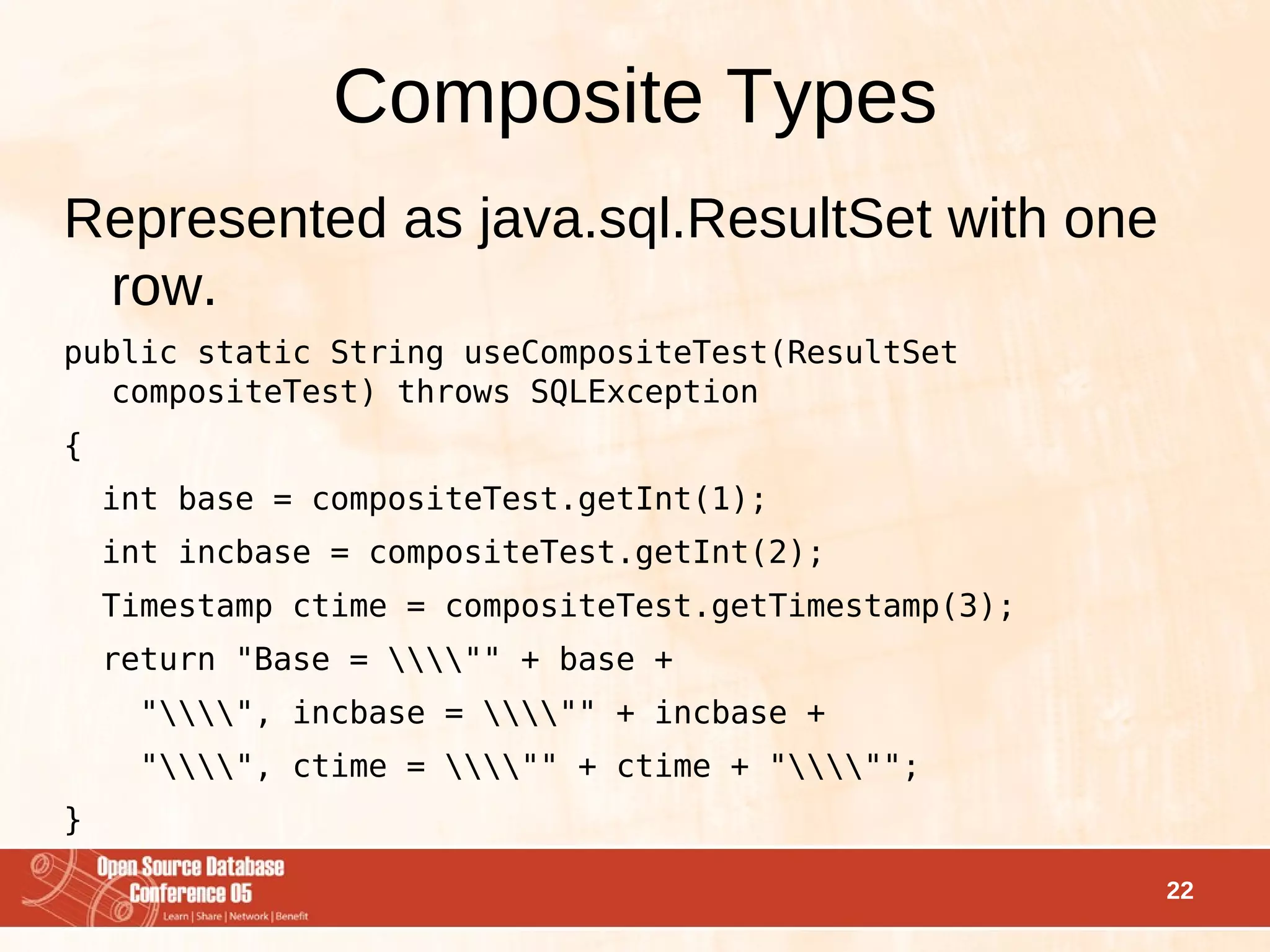
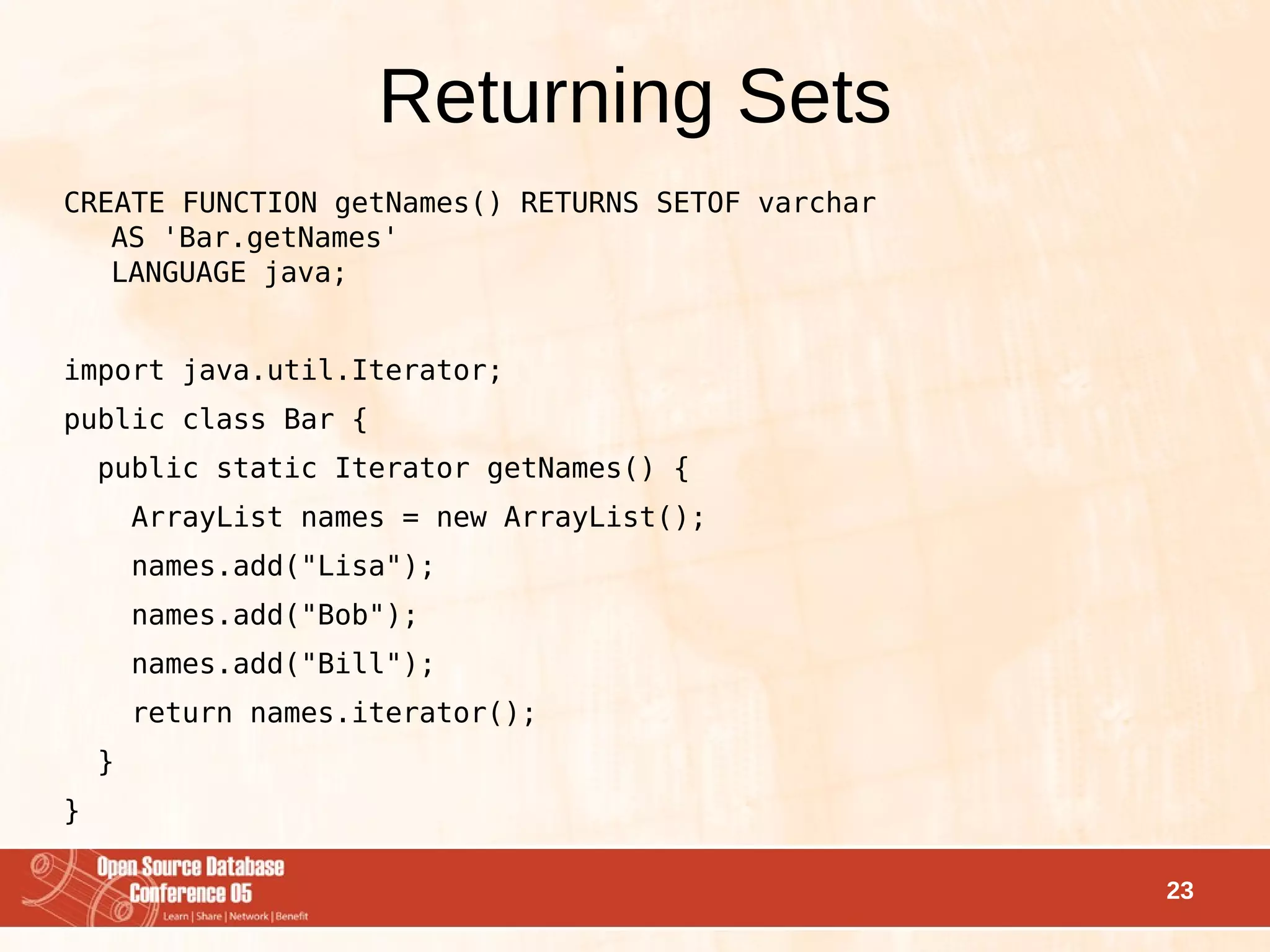
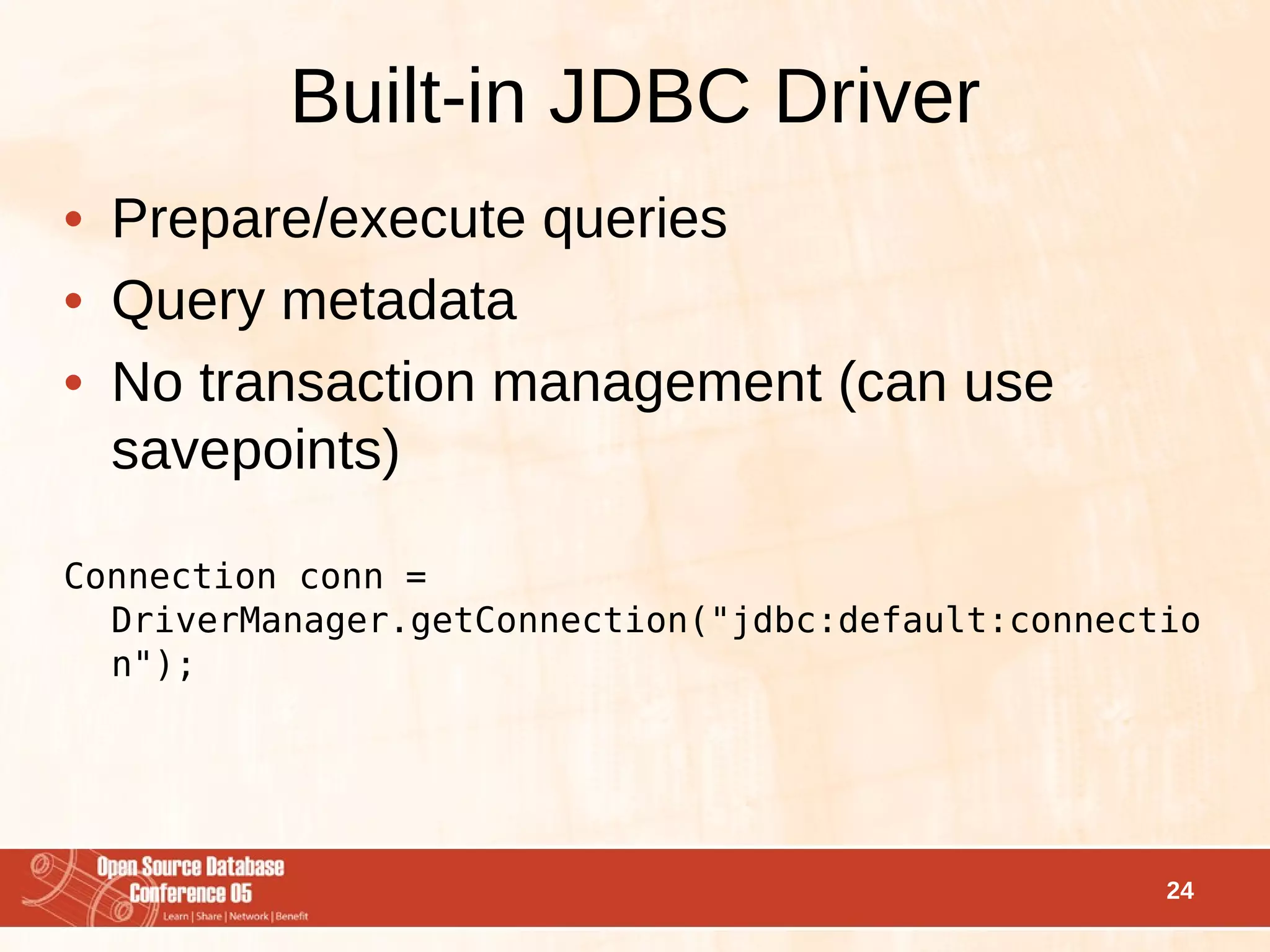
![Triggers static void moddatetime(TriggerData td) throws SQLException { if(td.isFiredForStatement()) throw new TriggerException(td, "can't process STATEMENT events"); if(td.isFiredAfter()) throw new TriggerException(td, "must be fired before event"); if(!td.isFiredByUpdate()) throw new TriggerException(td, "can only process UPDATE events"); ResultSet _new = td.getNew(); String[] args = td.getArguments(); if (args.length != 1) throw new TriggerException(td, "one argument was expected"); _new.updateTimestamp(args[0], new Timestamp(System.currentTimeMillis())); } 25](https://image.slidesharecdn.com/pljava-090619092408-phpapp02/75/PostgreSQL-and-PL-Java-25-2048.jpg)
